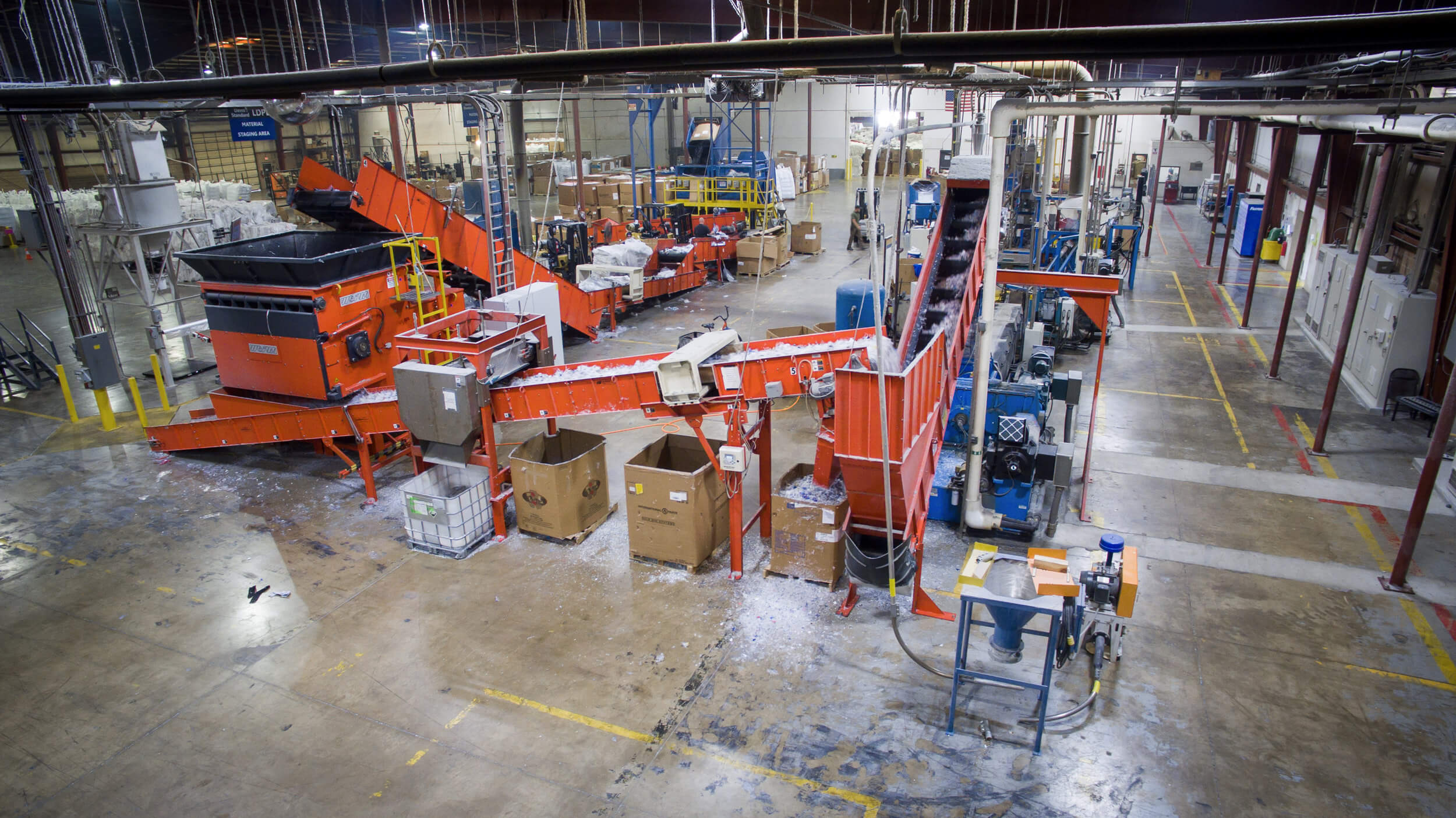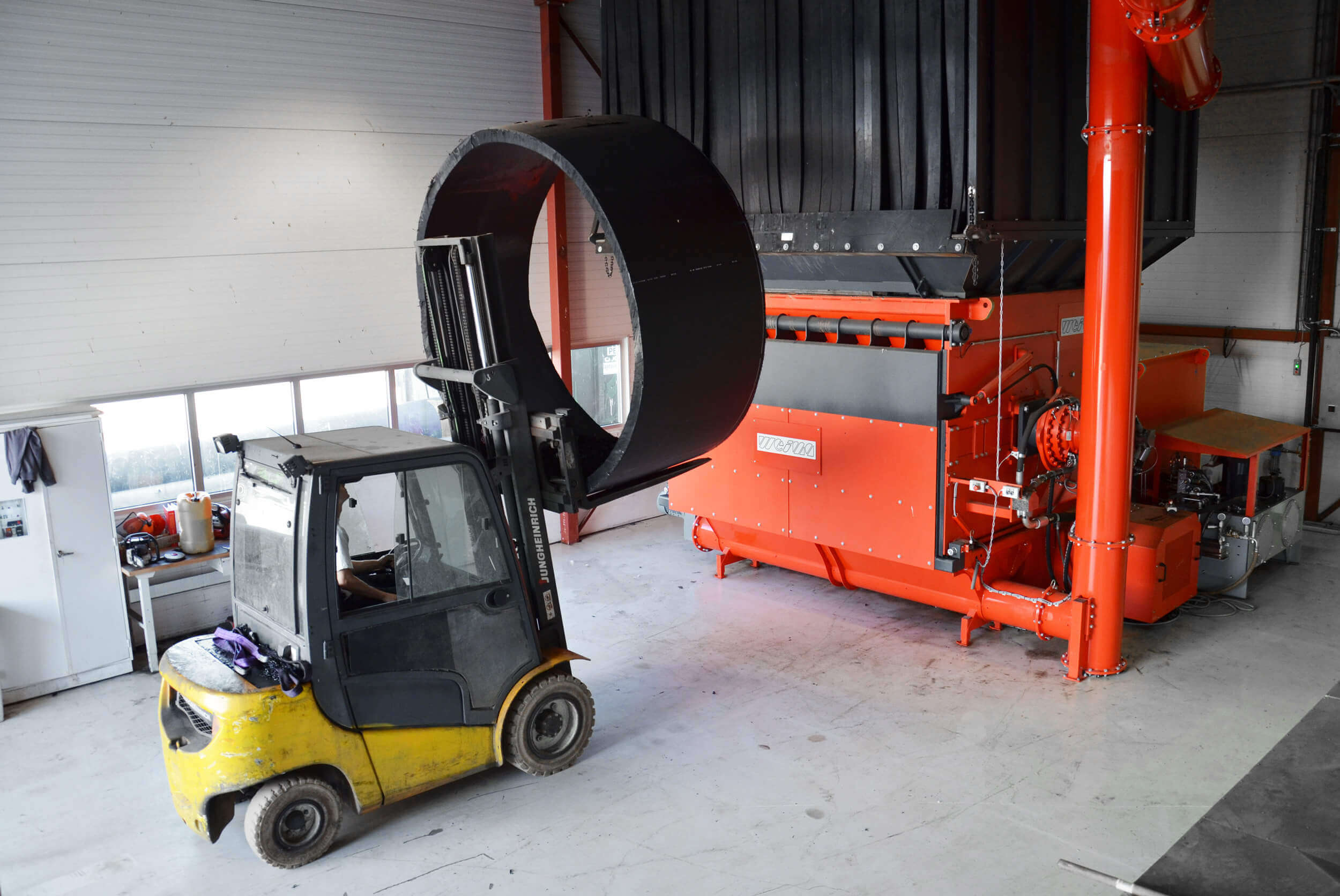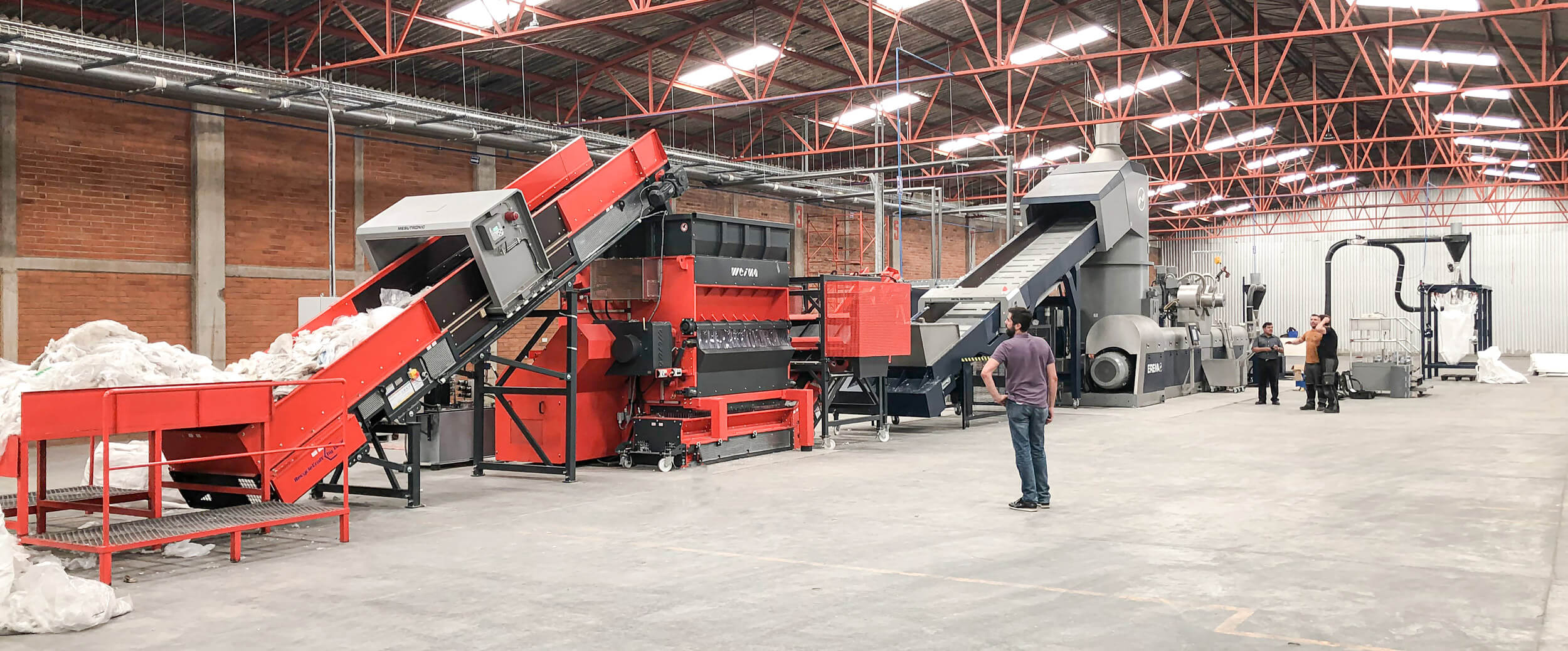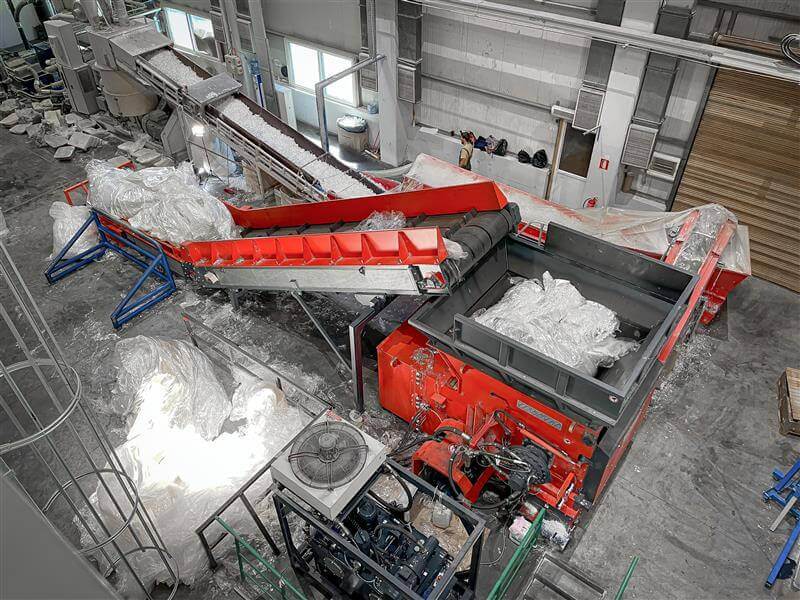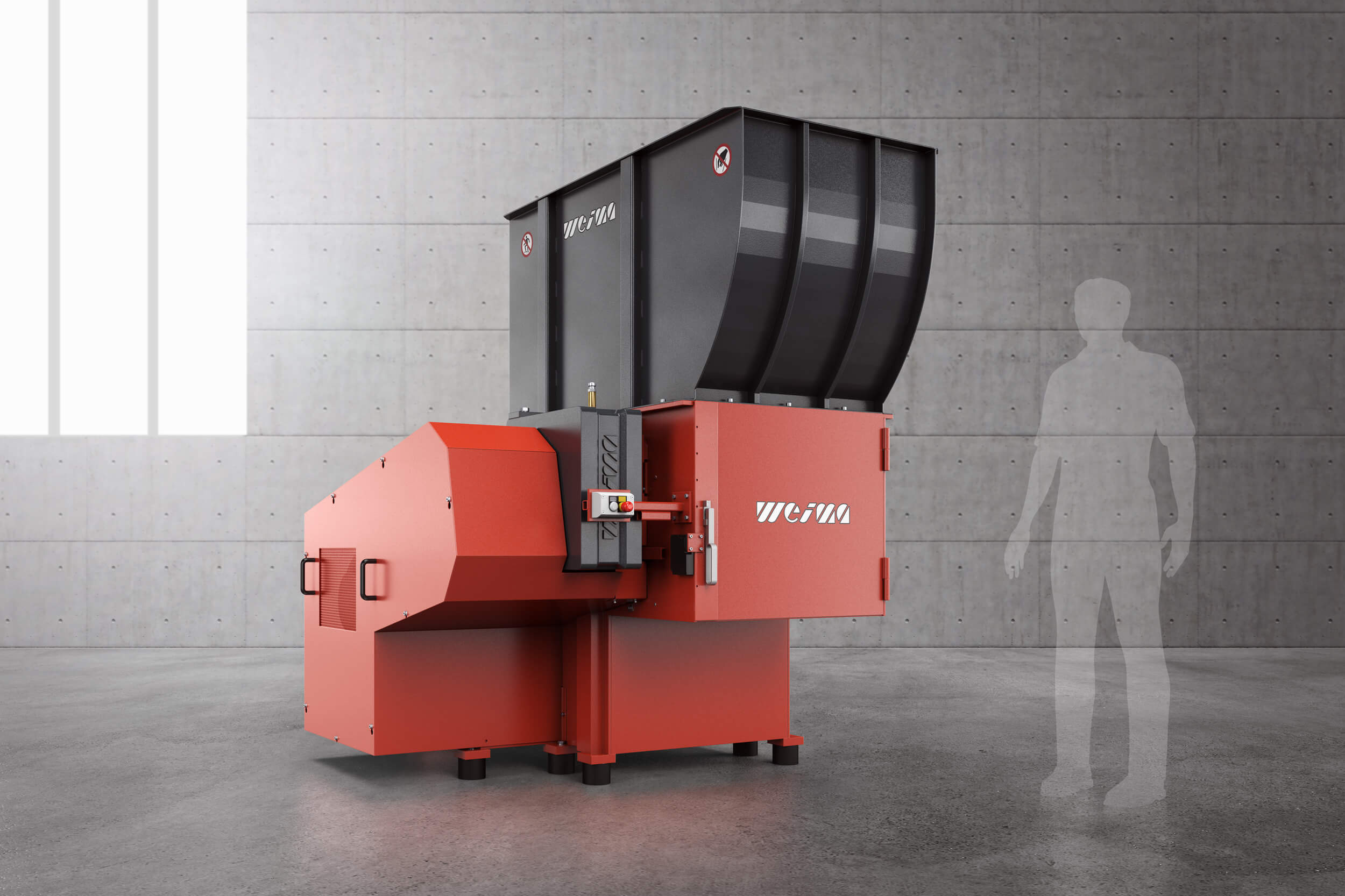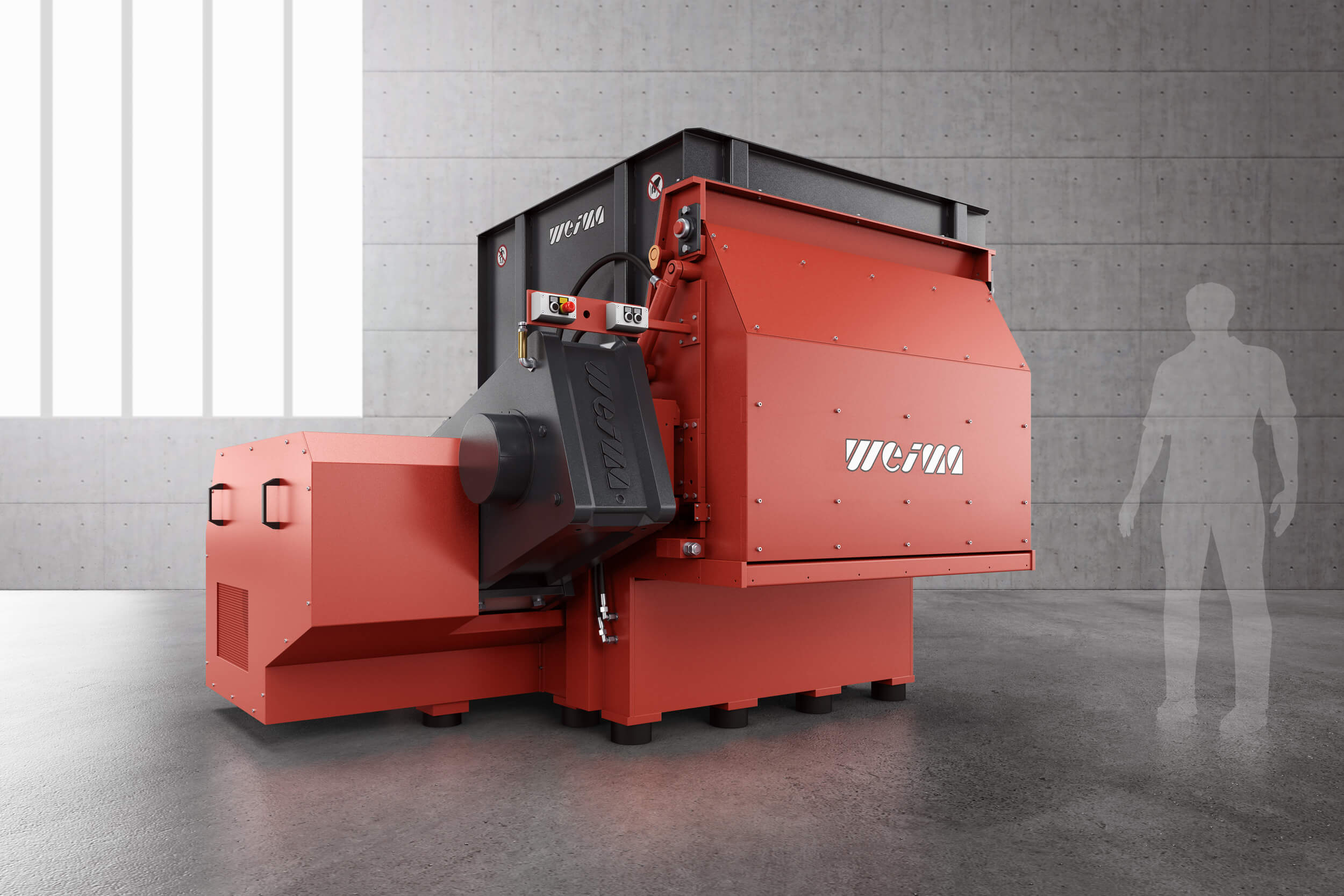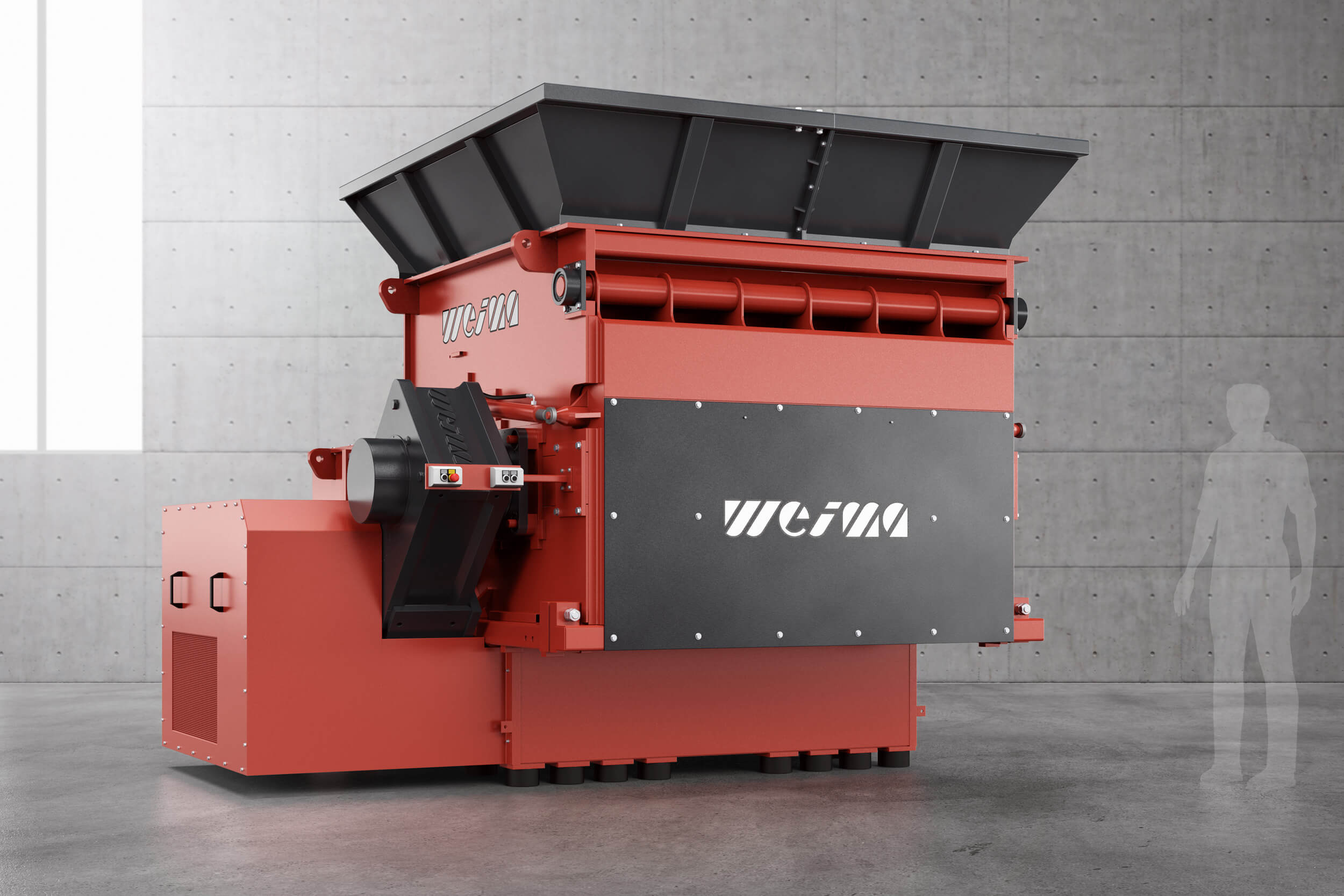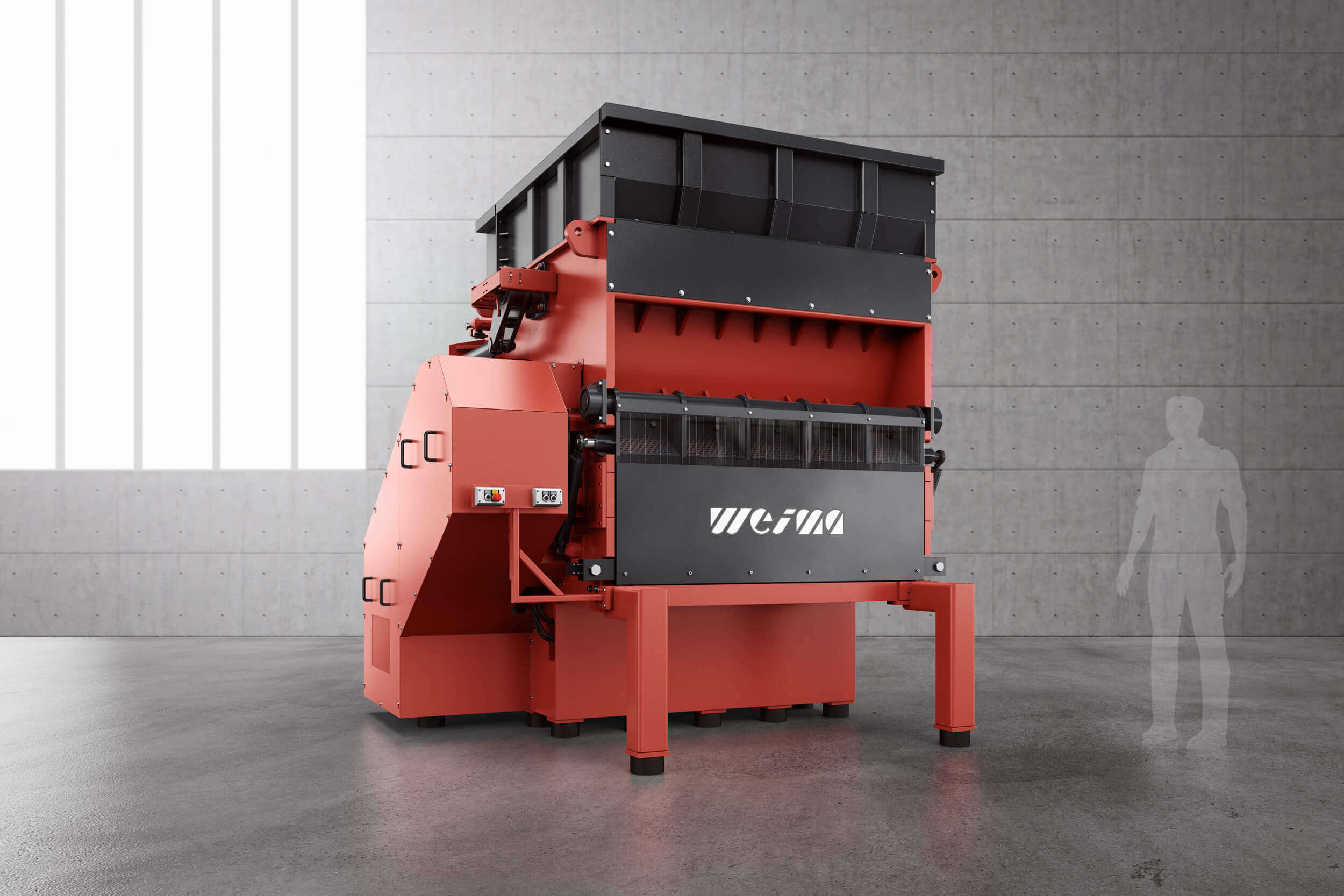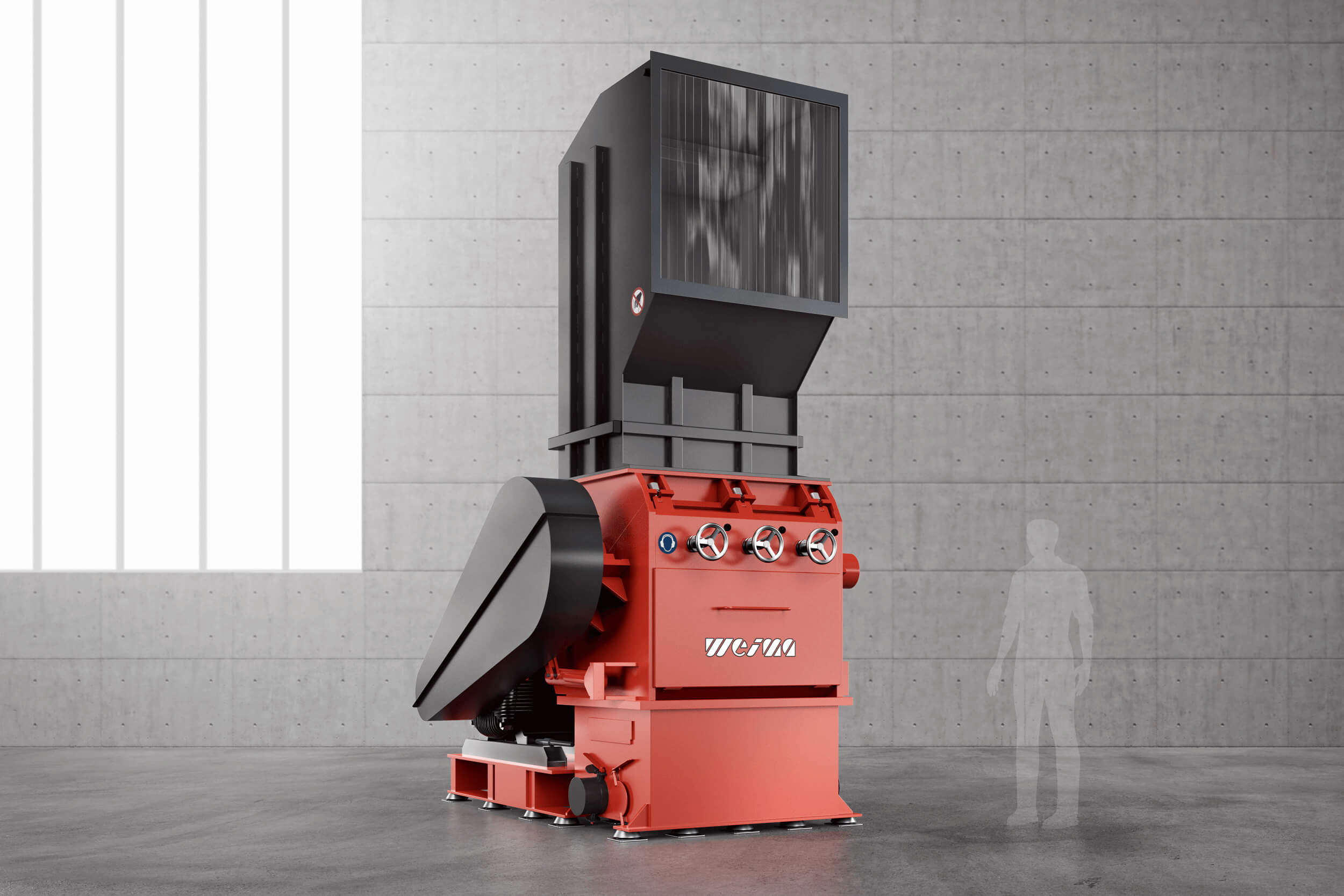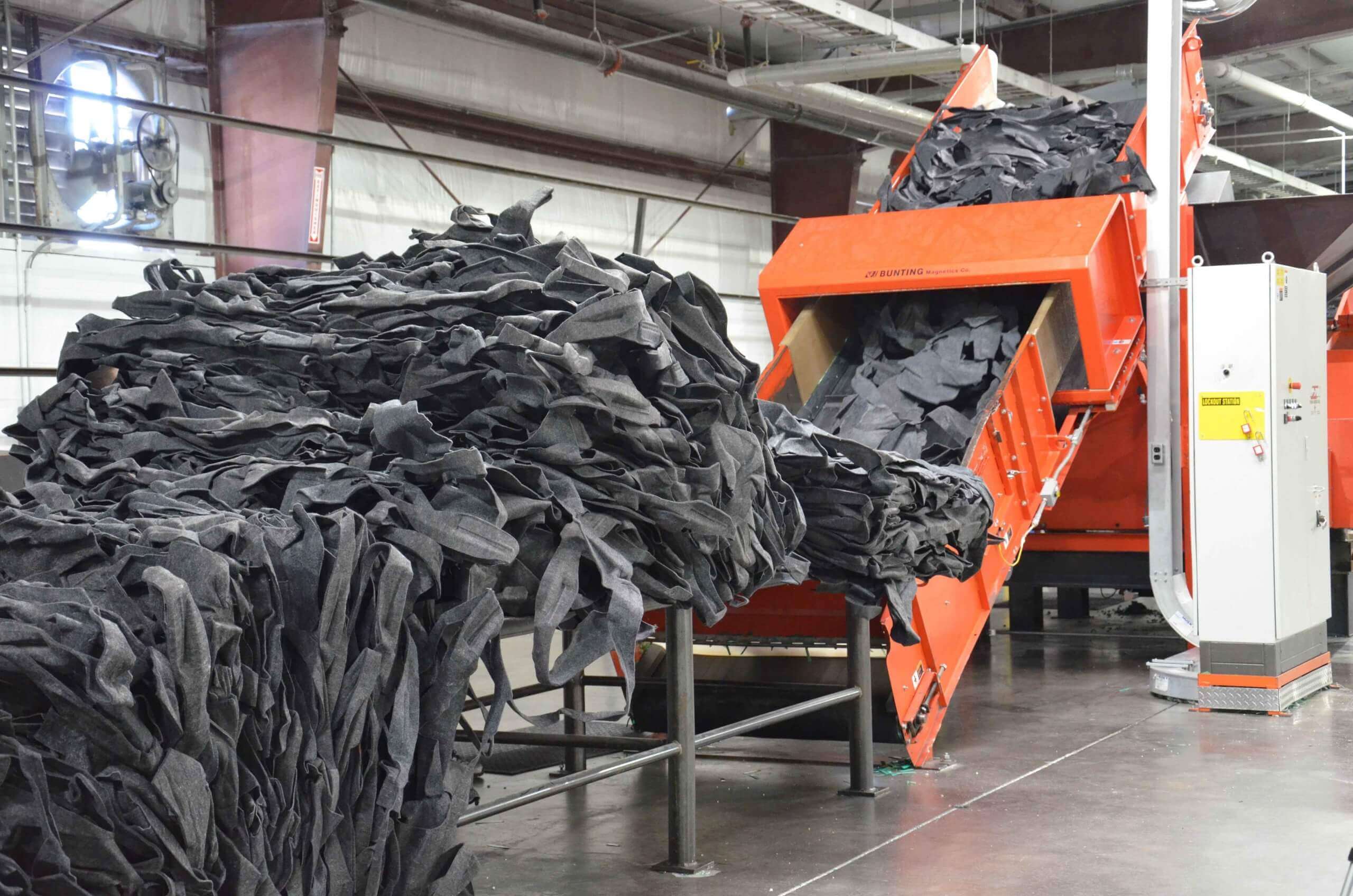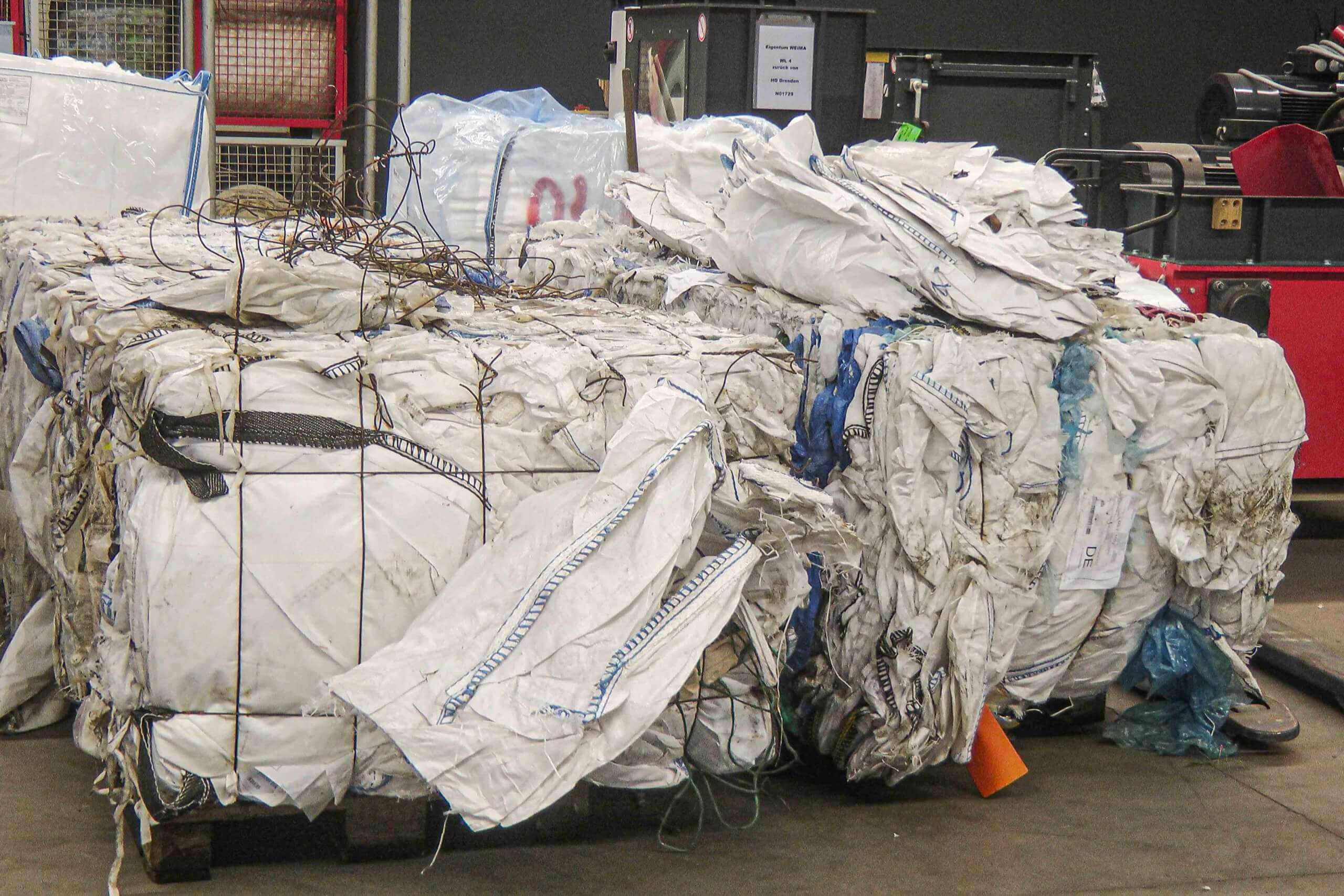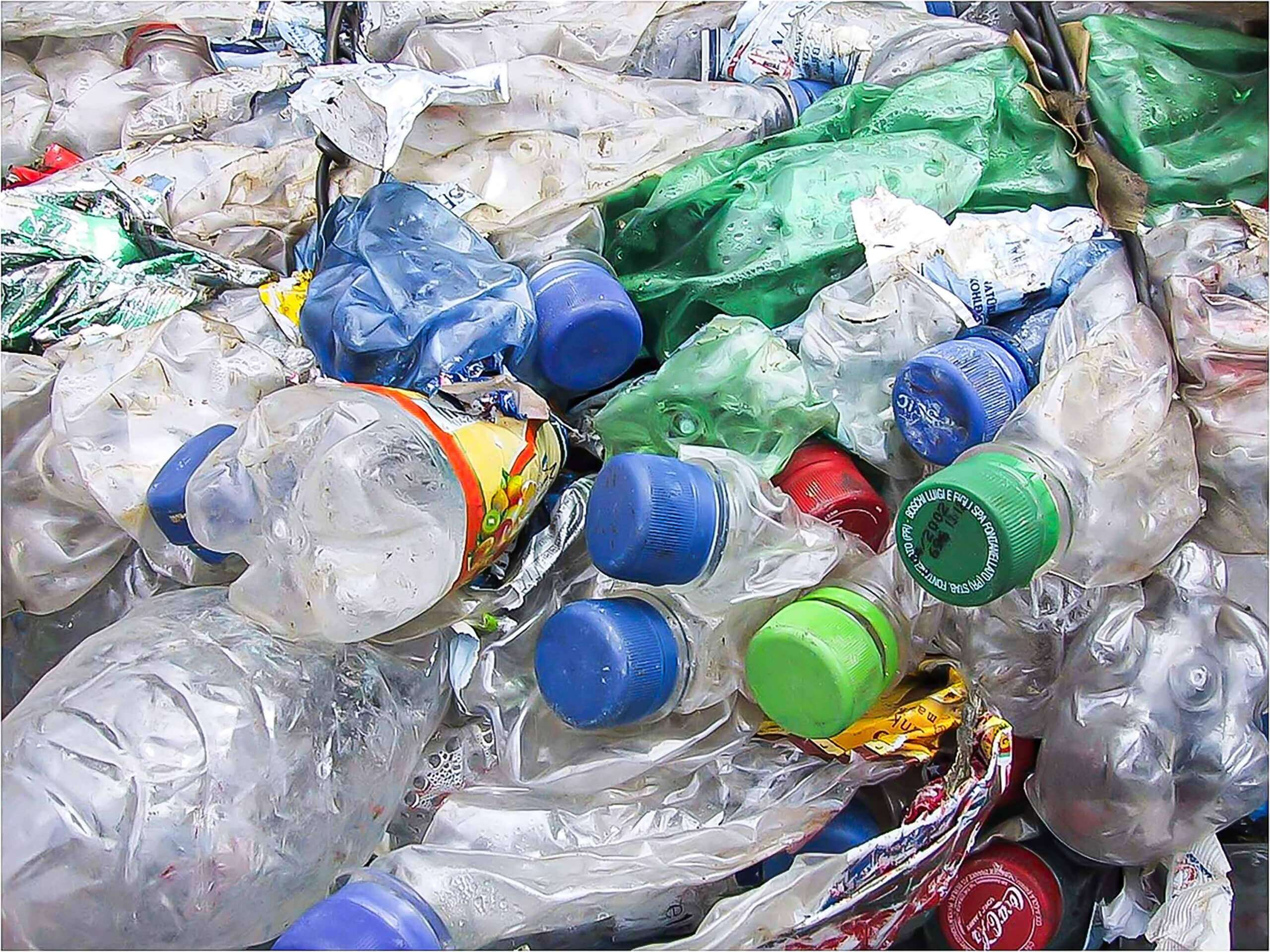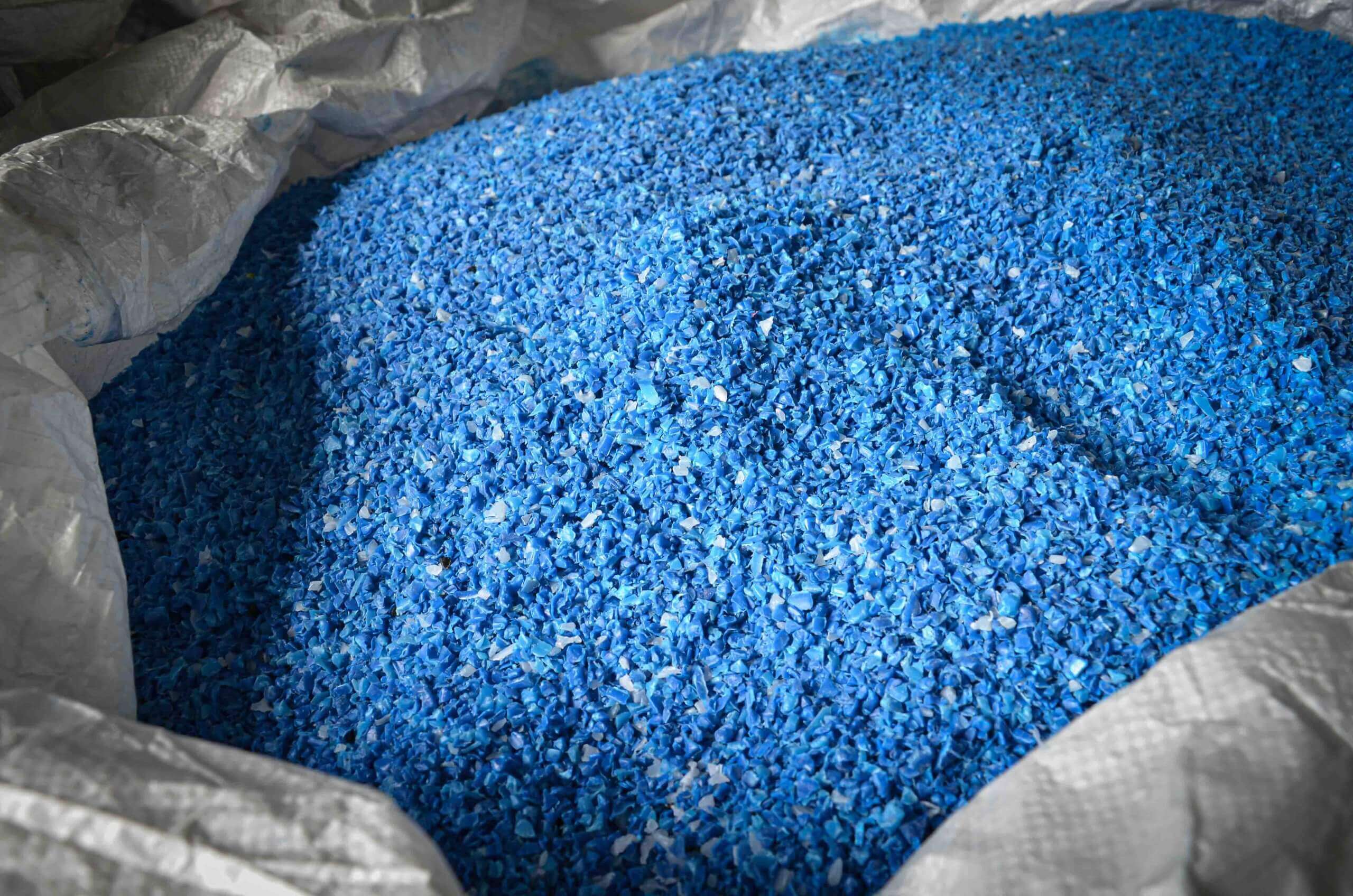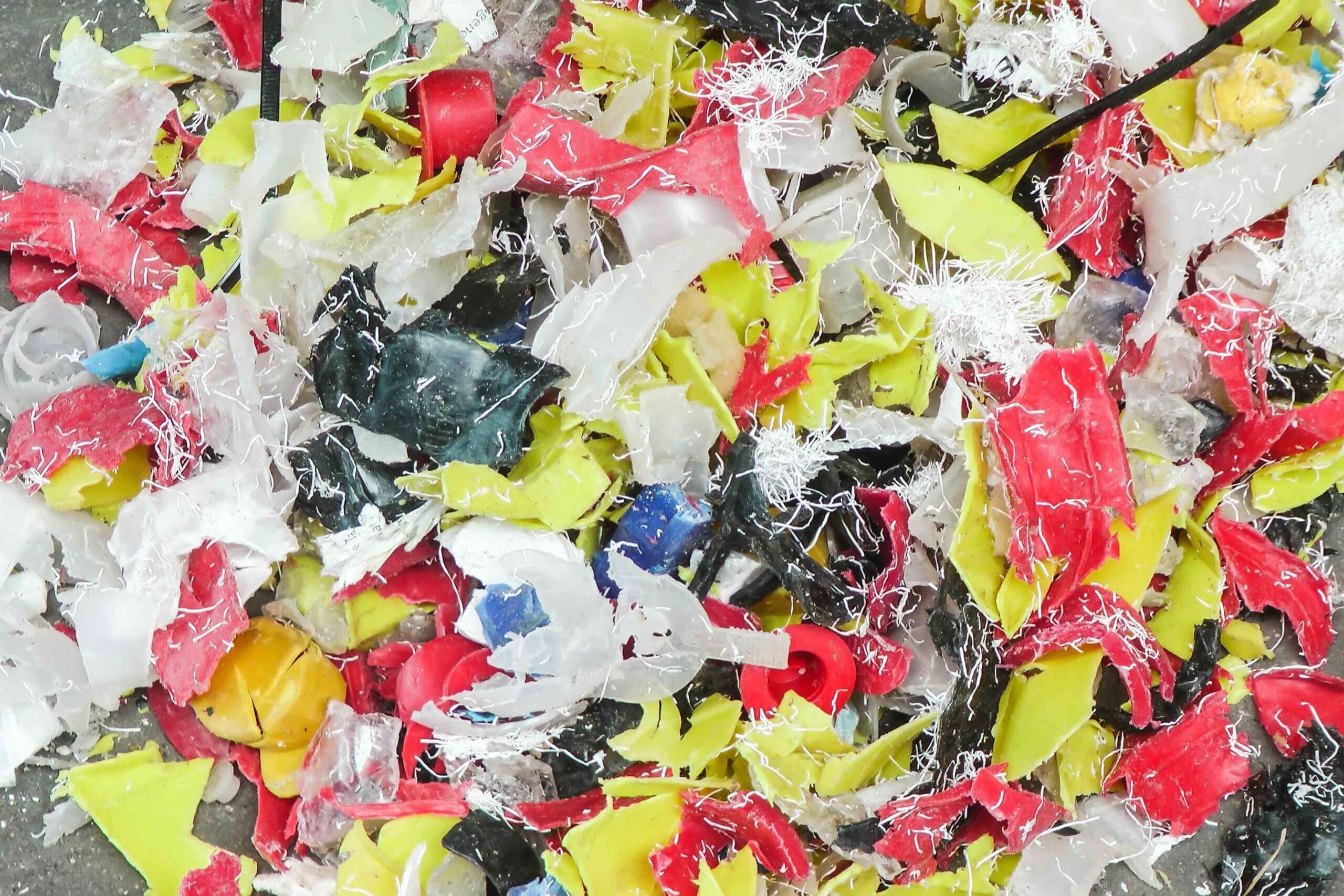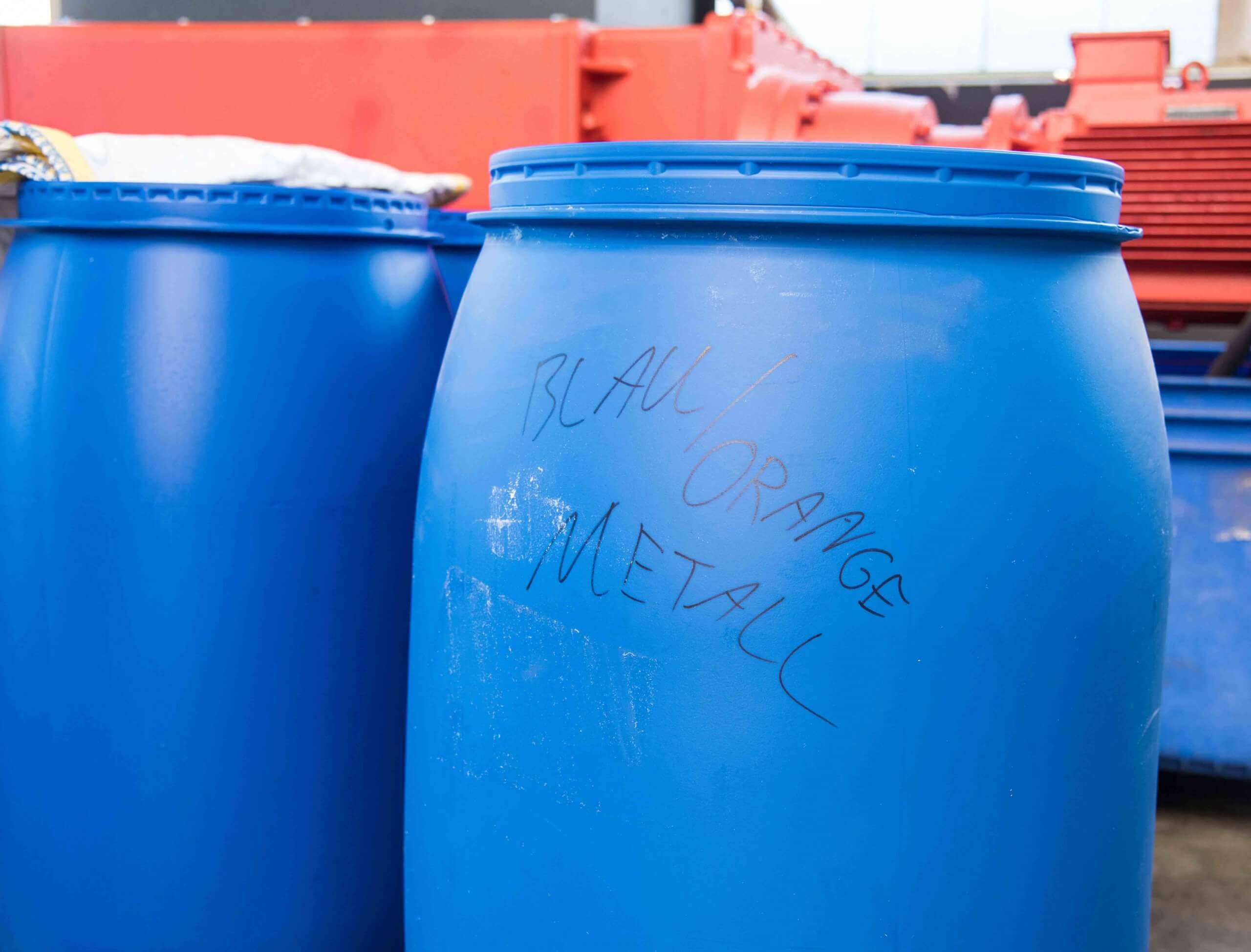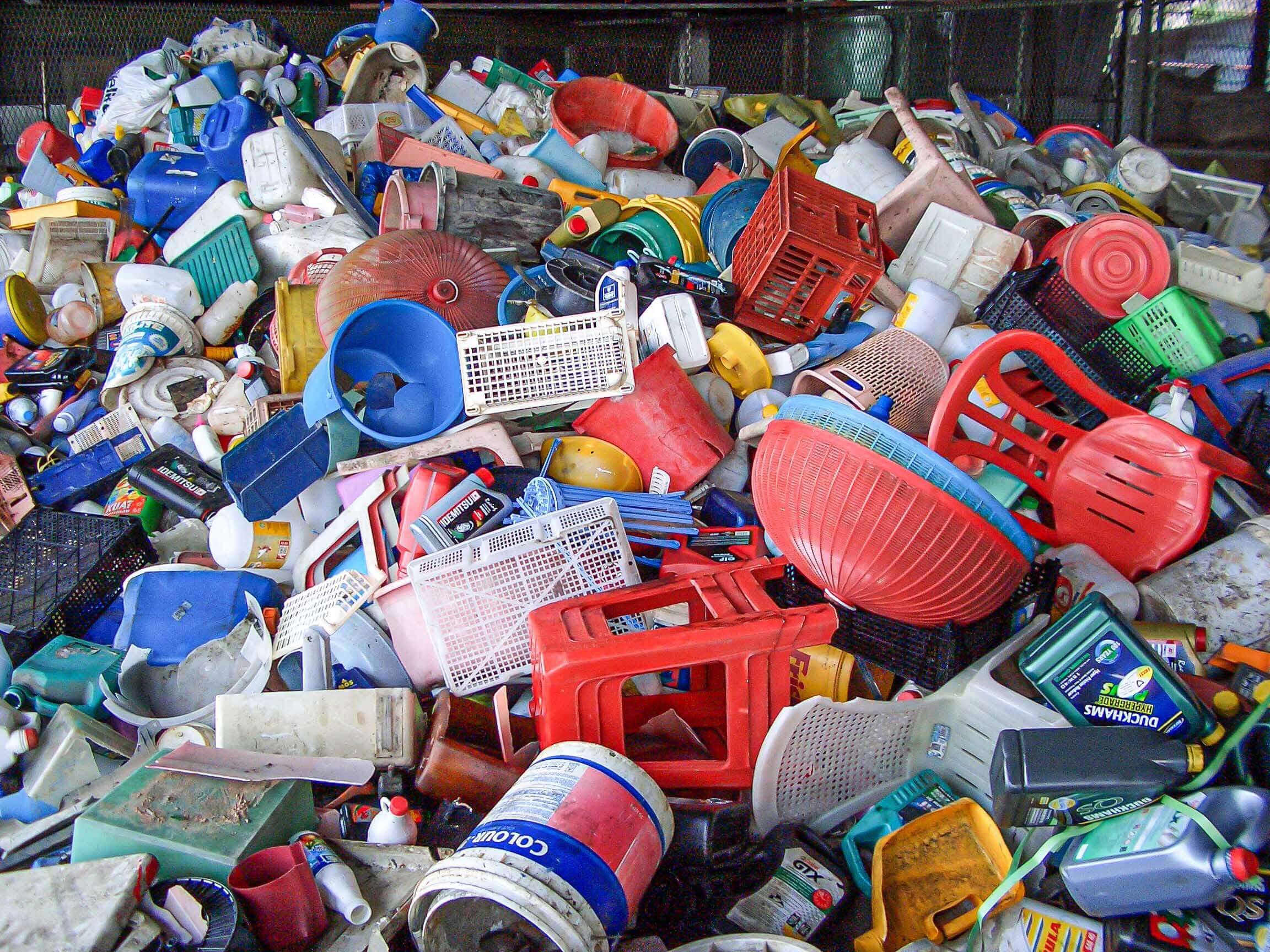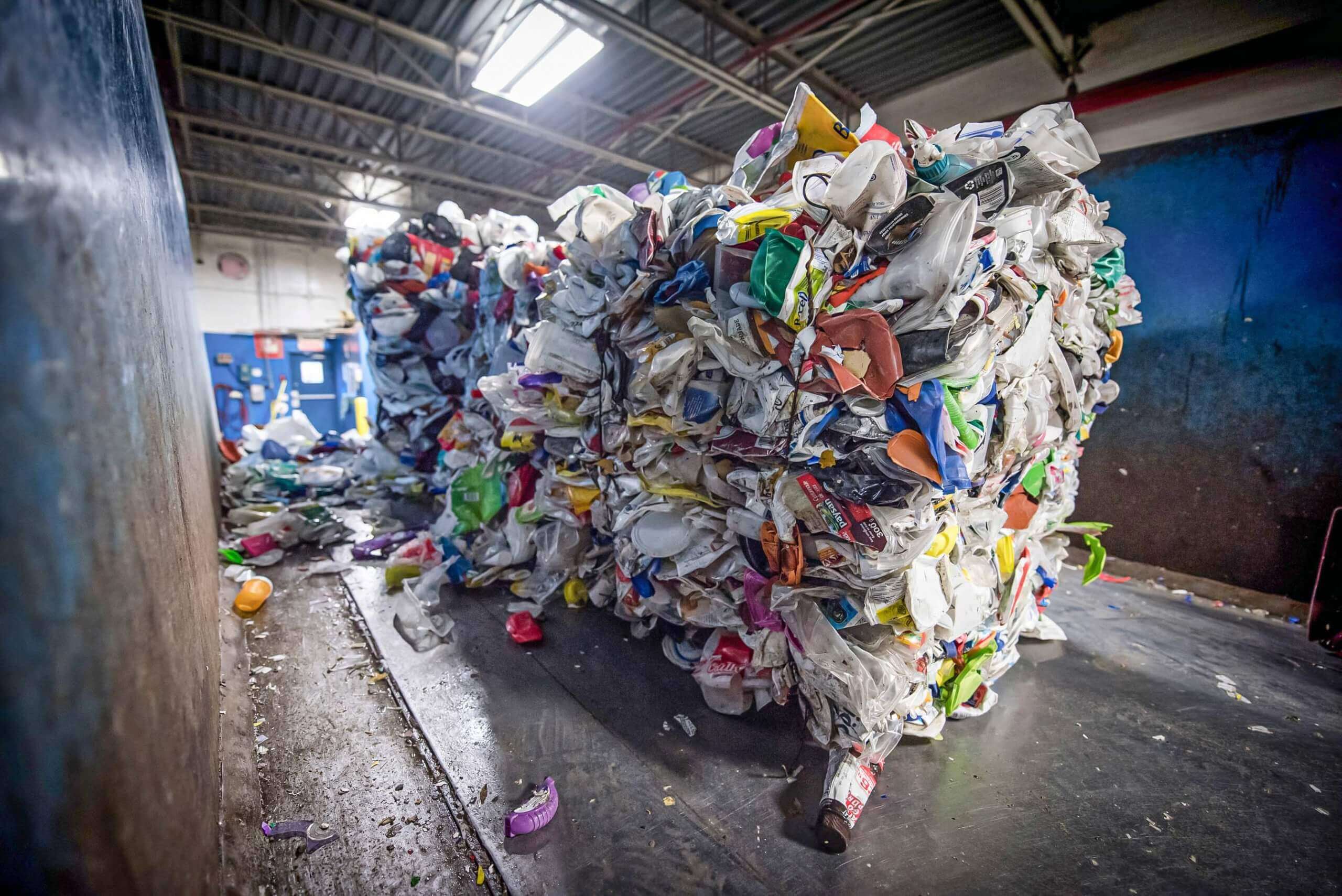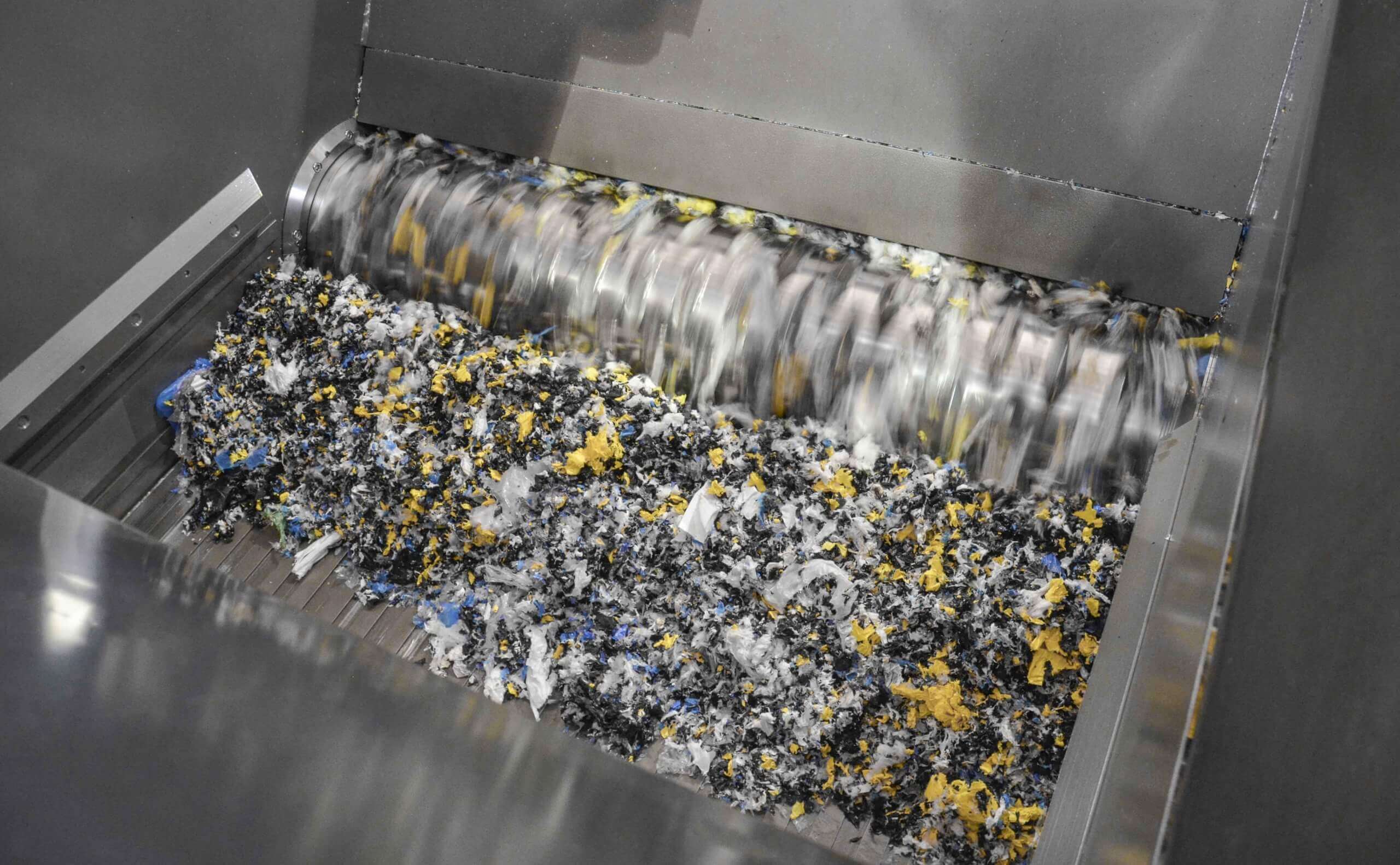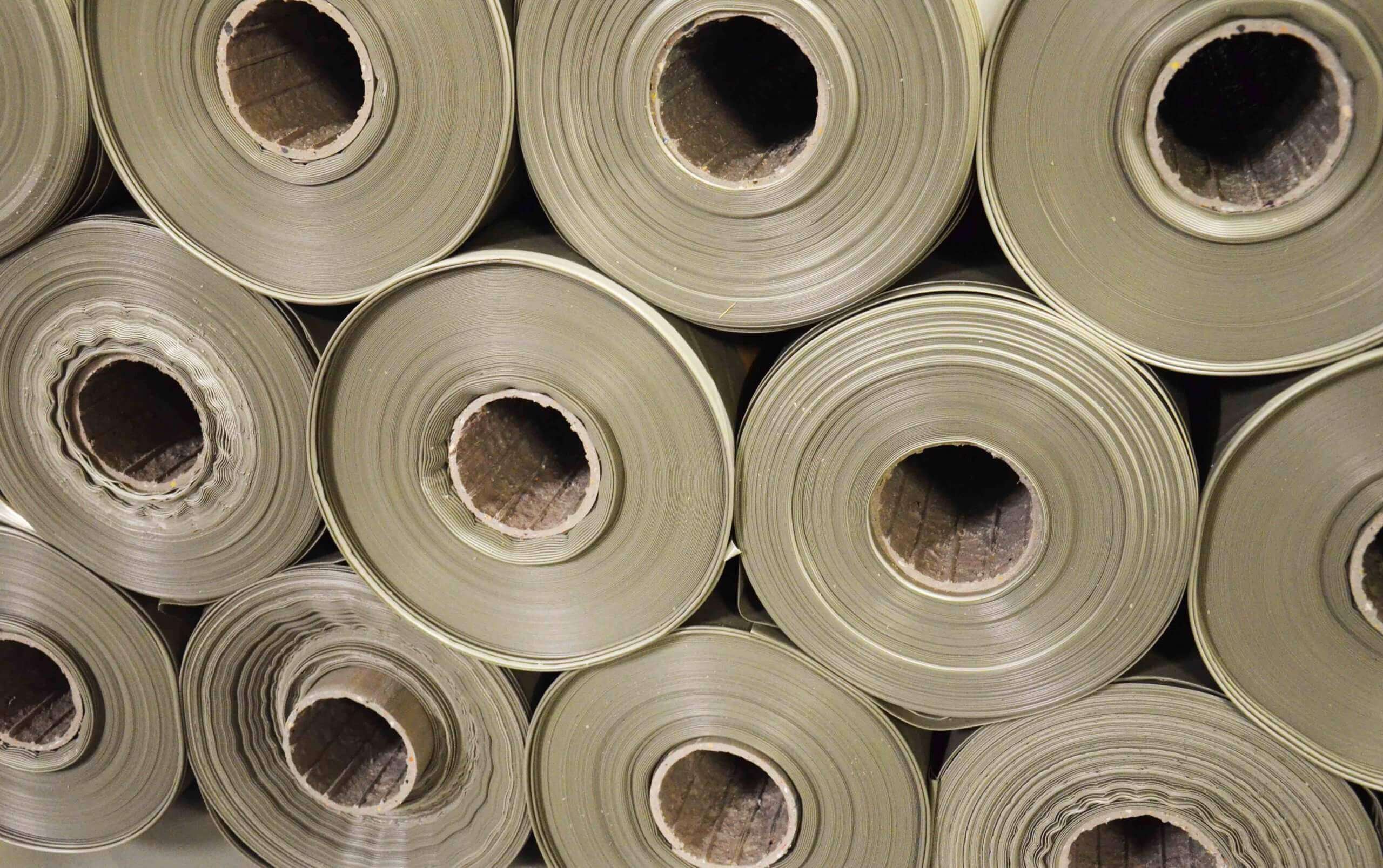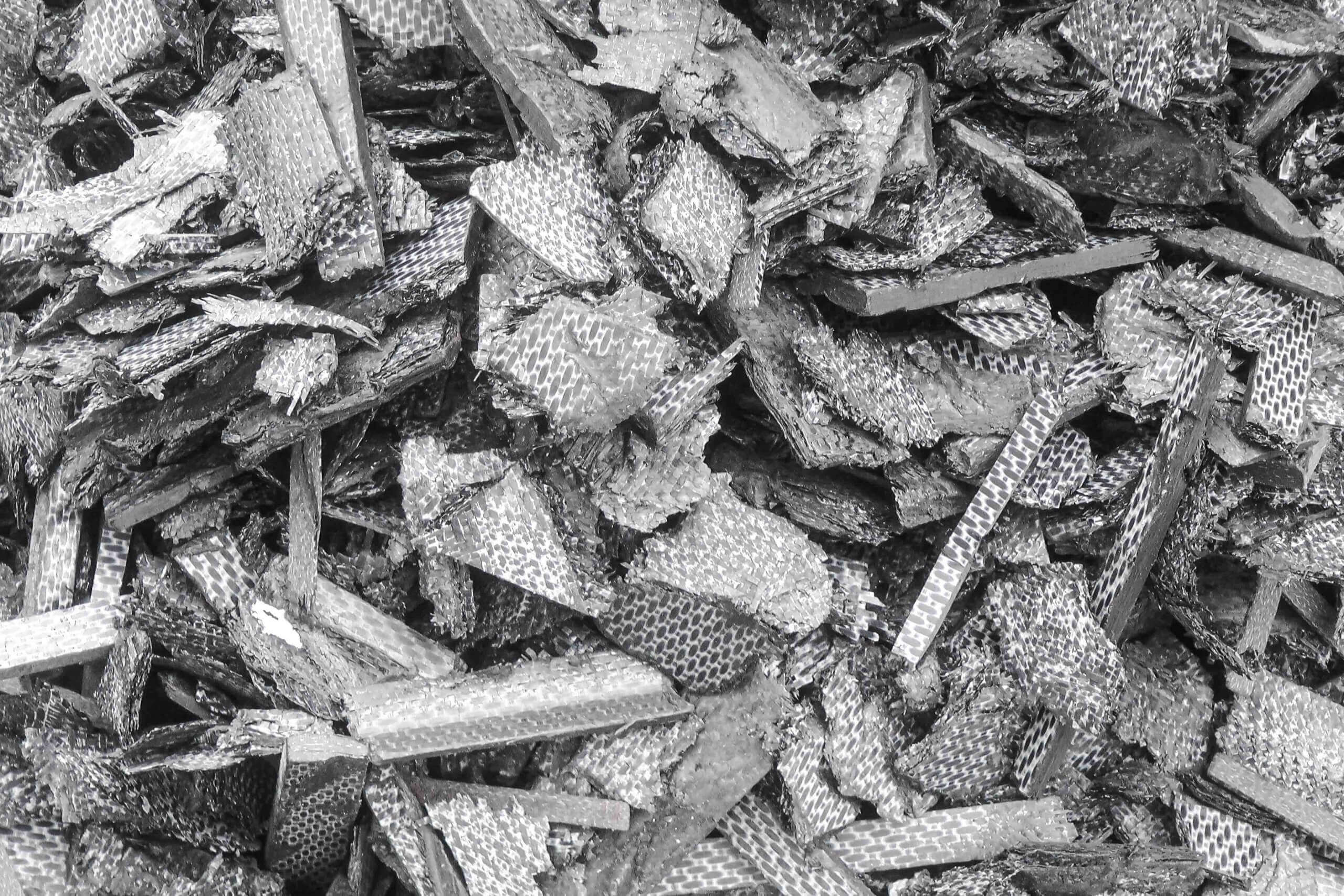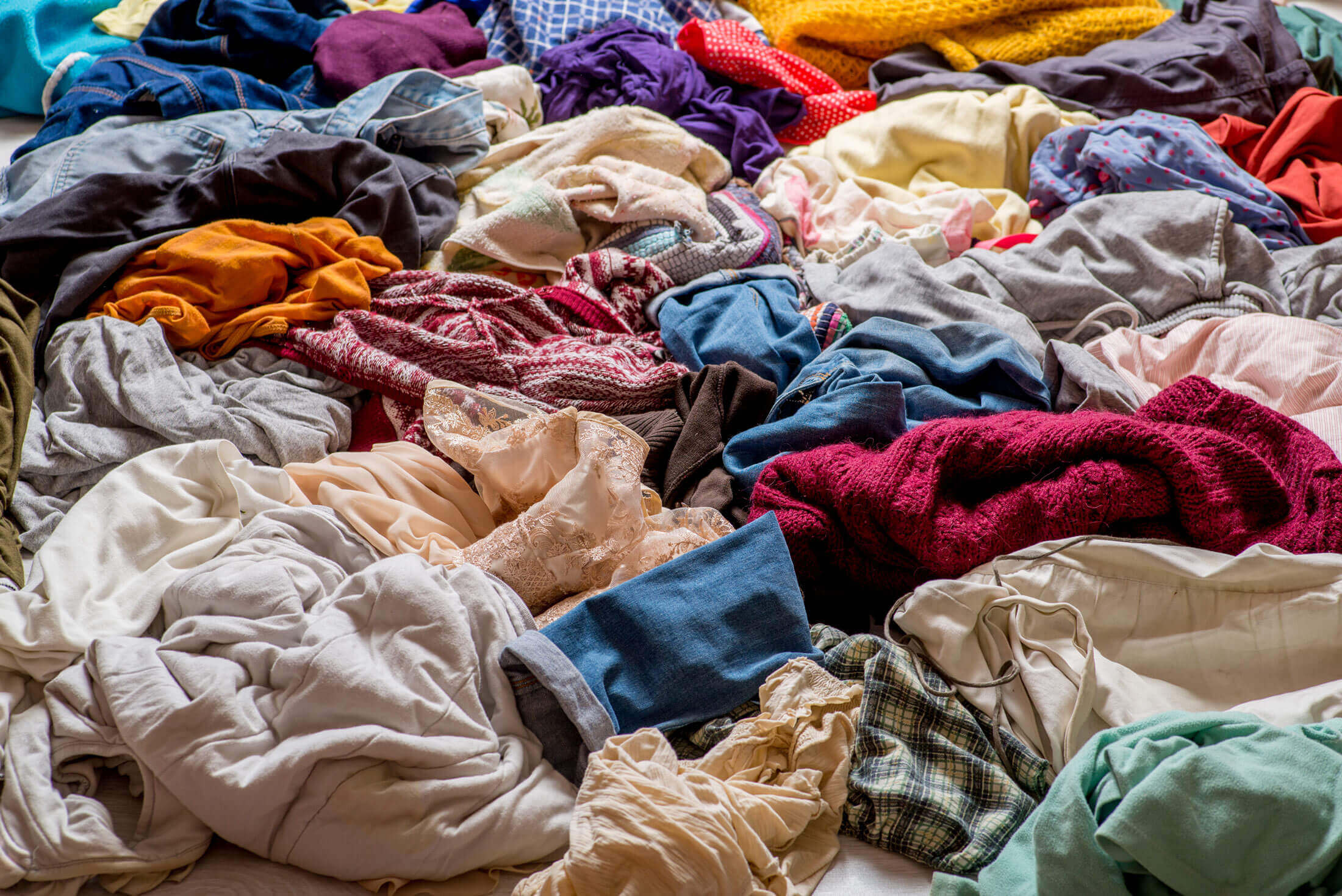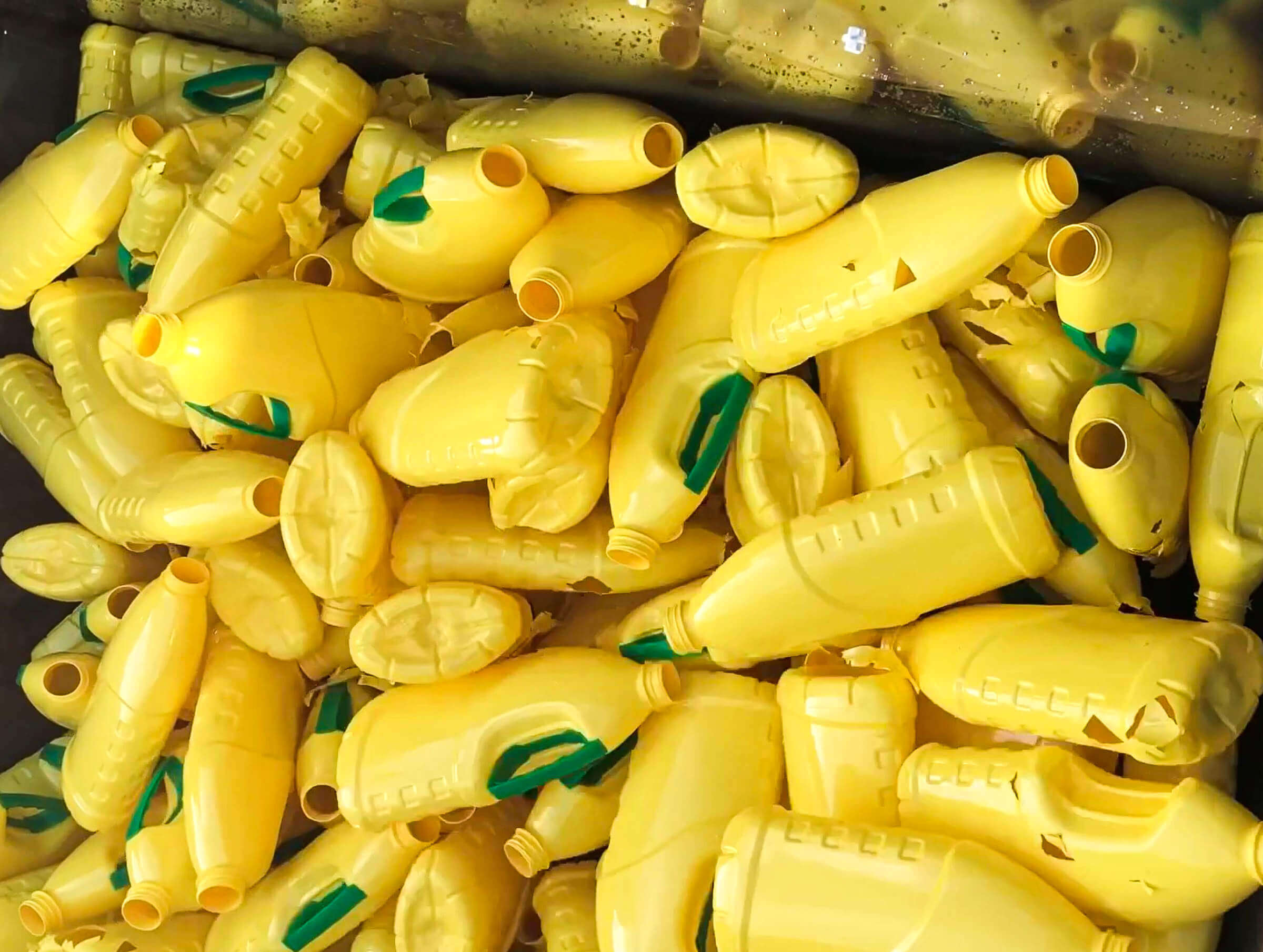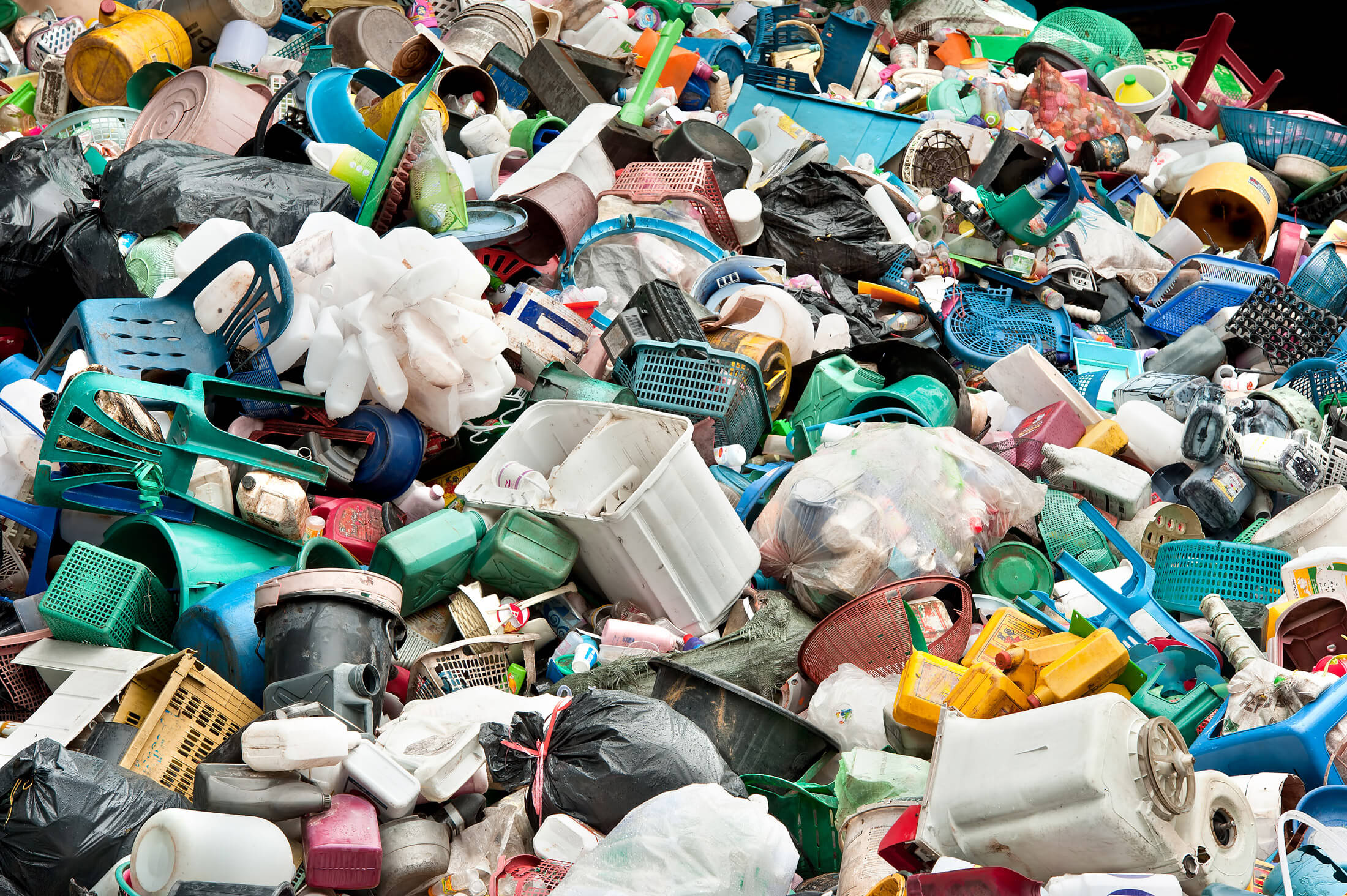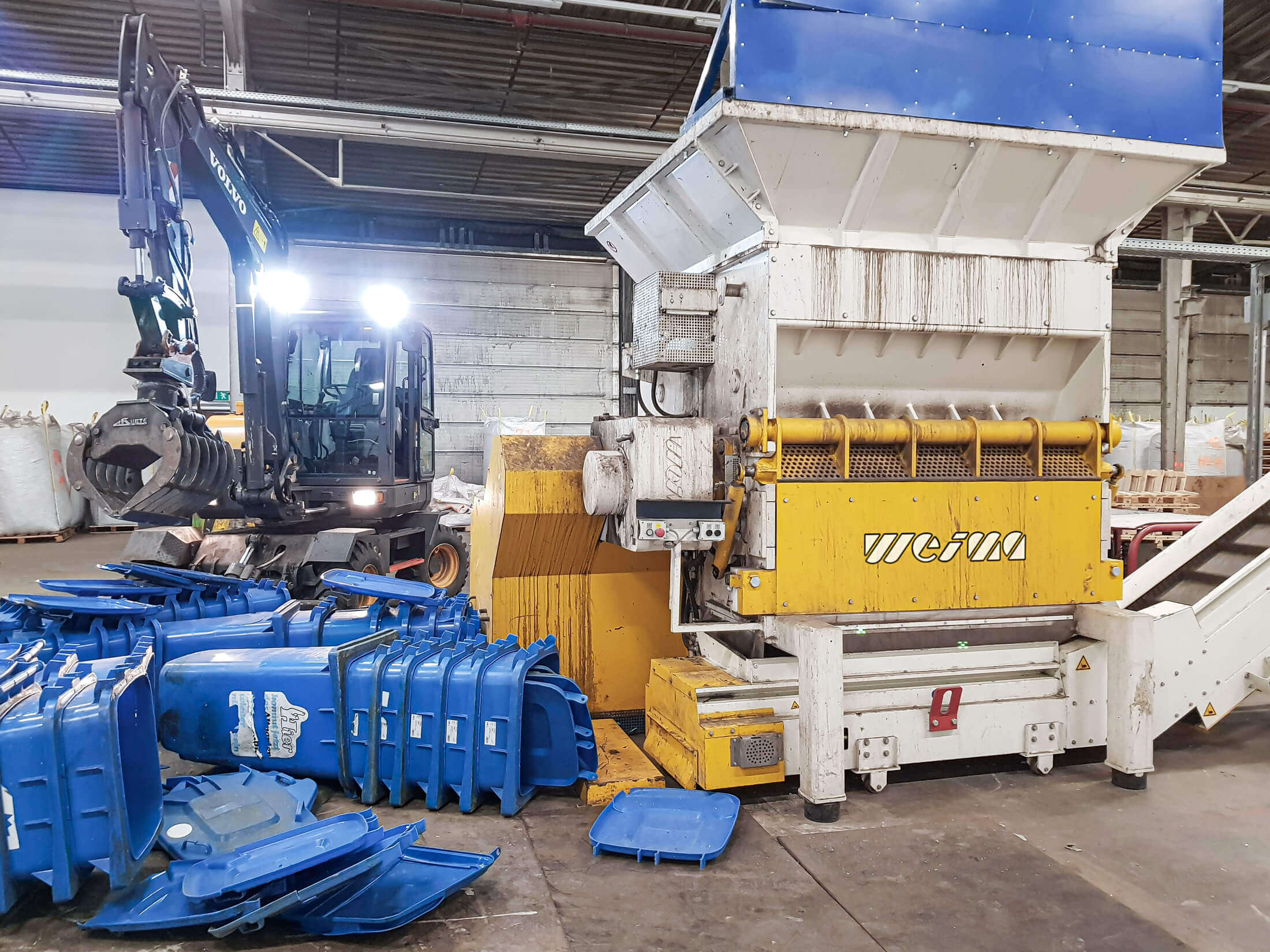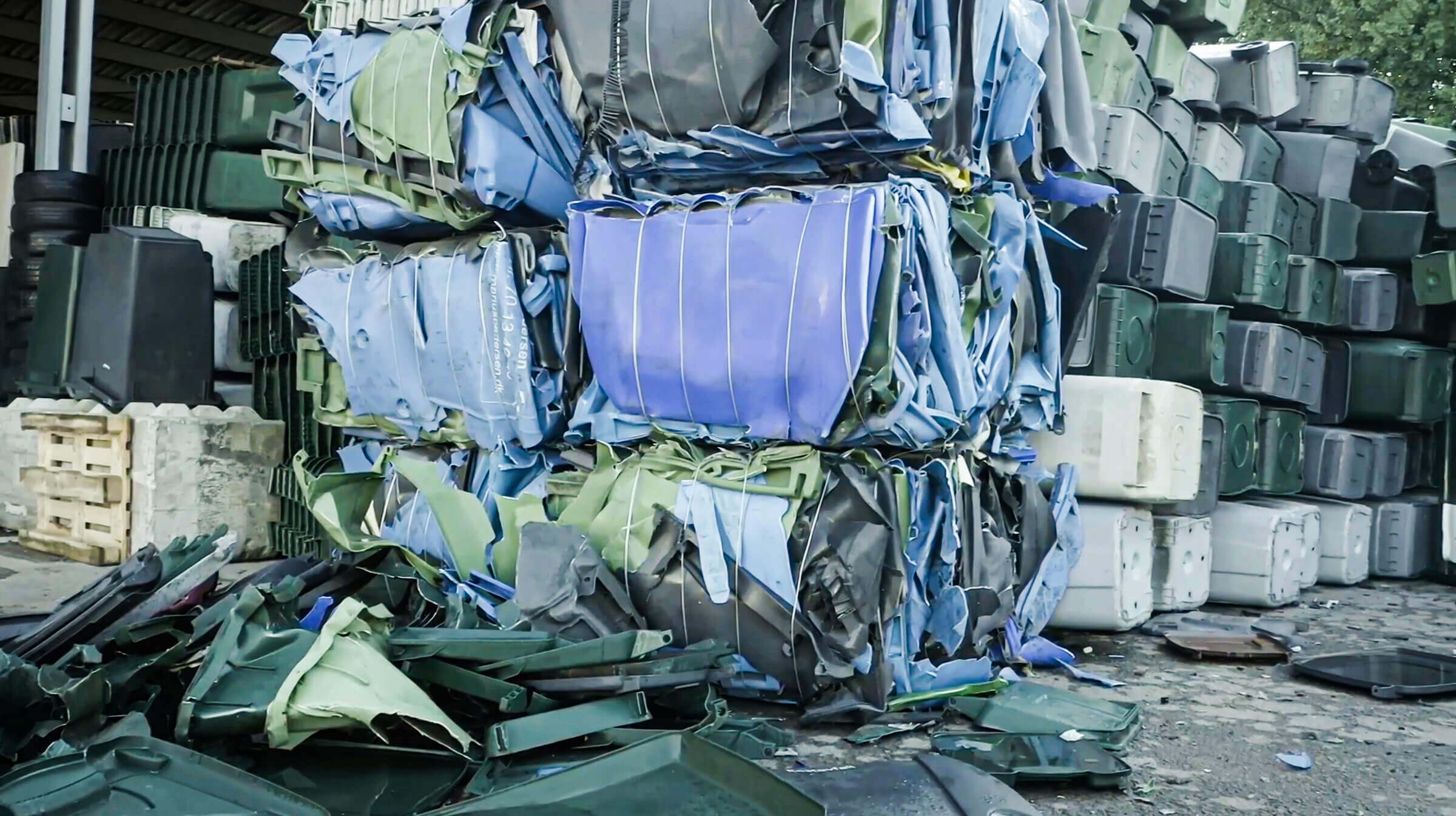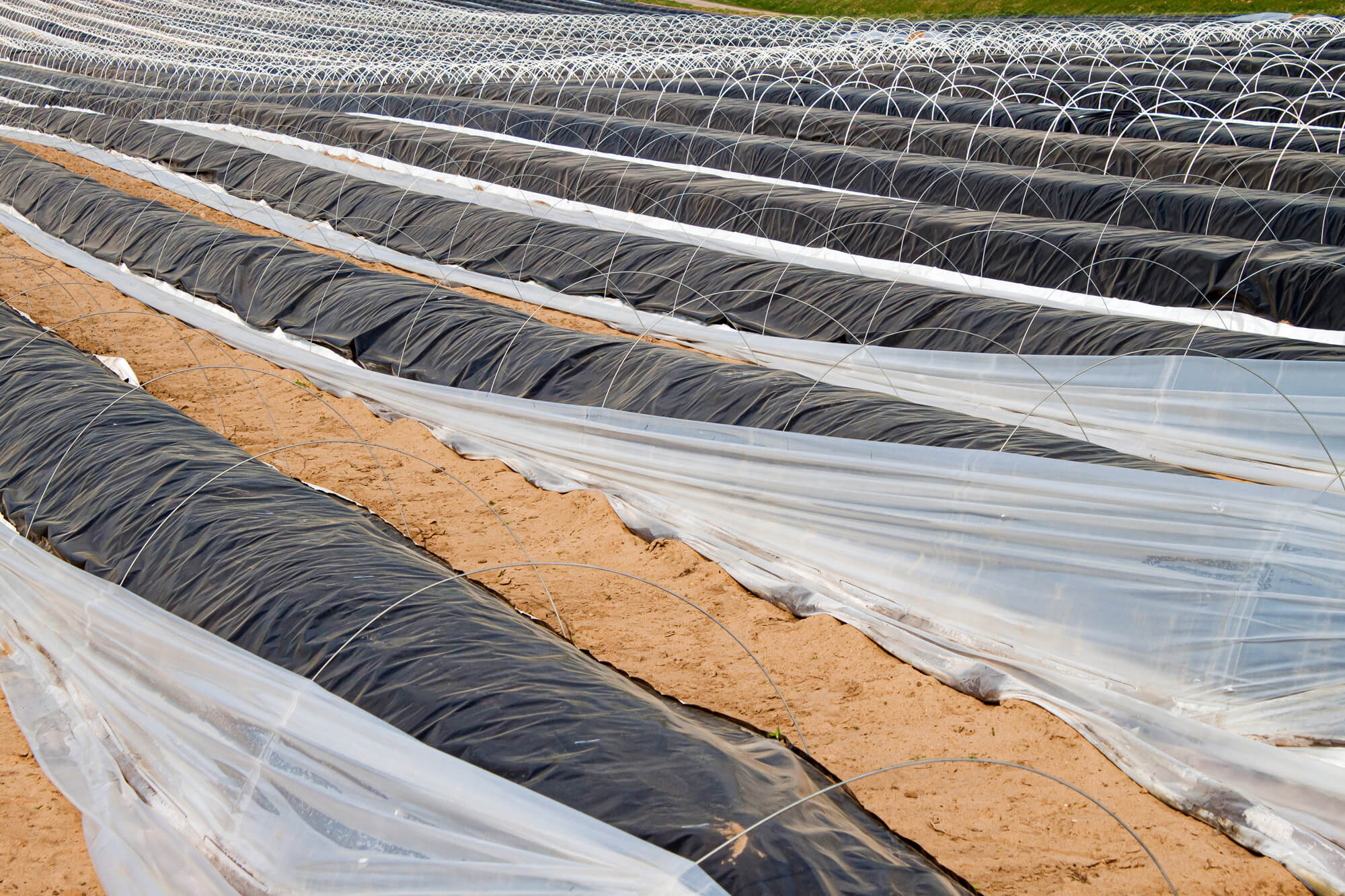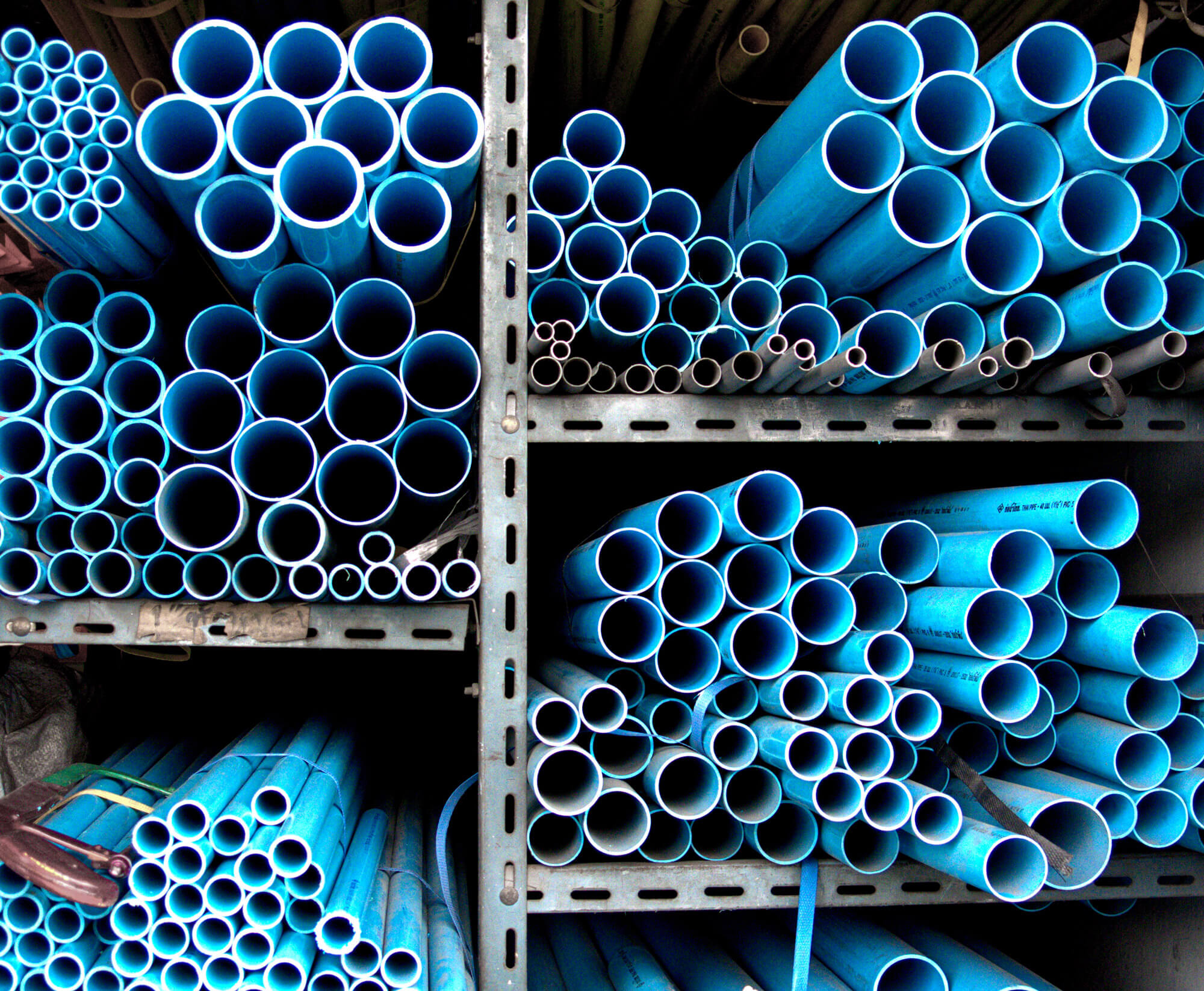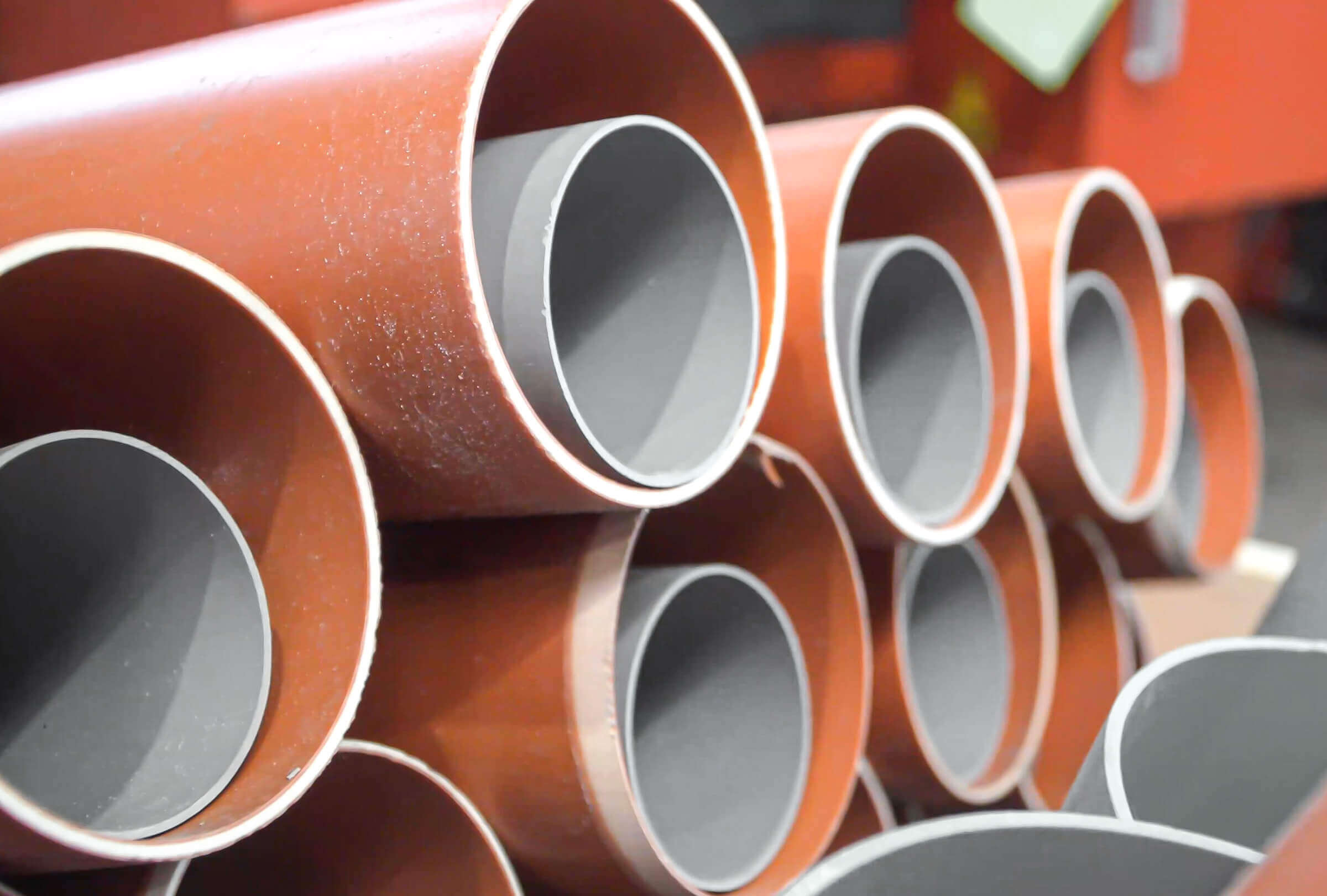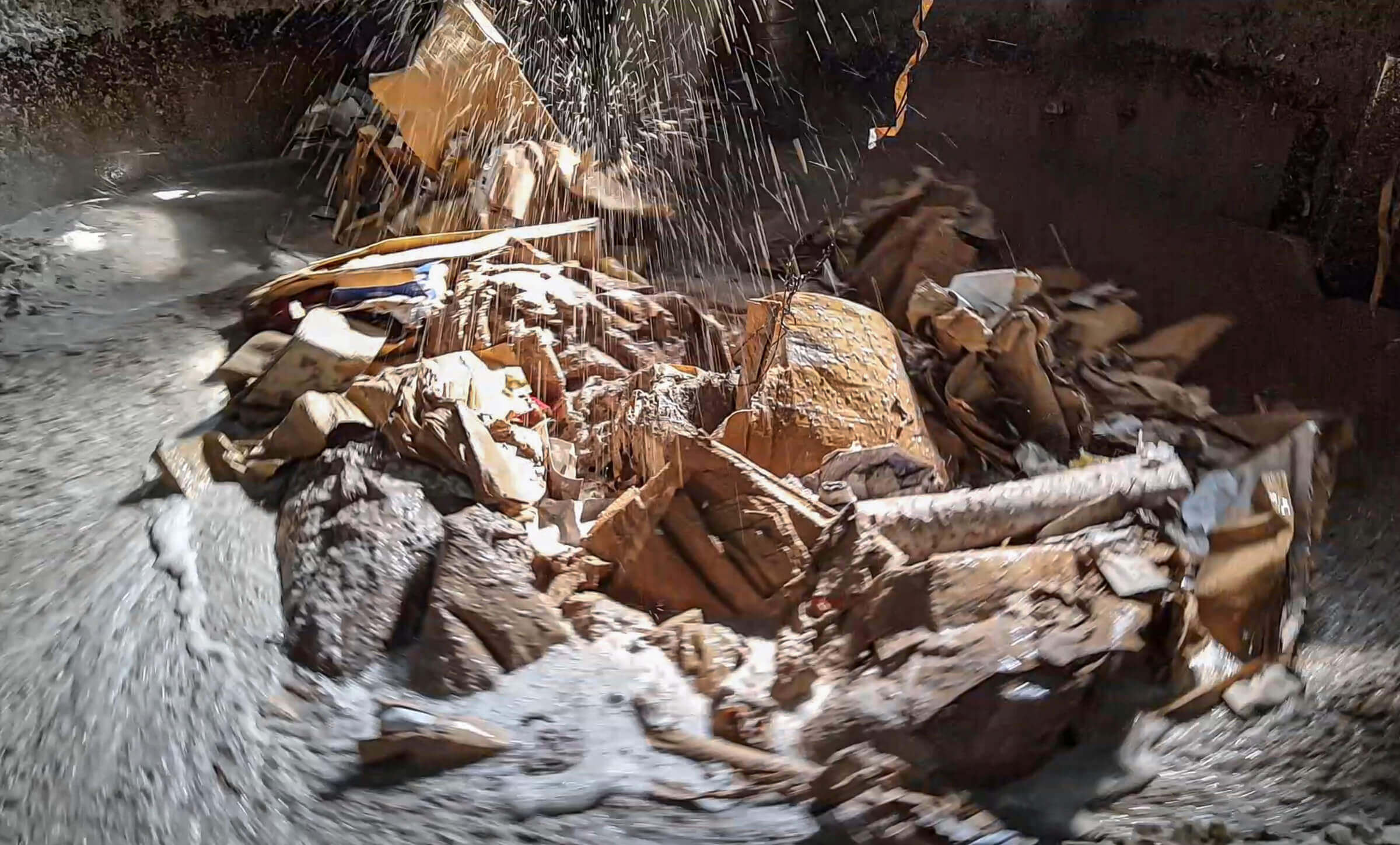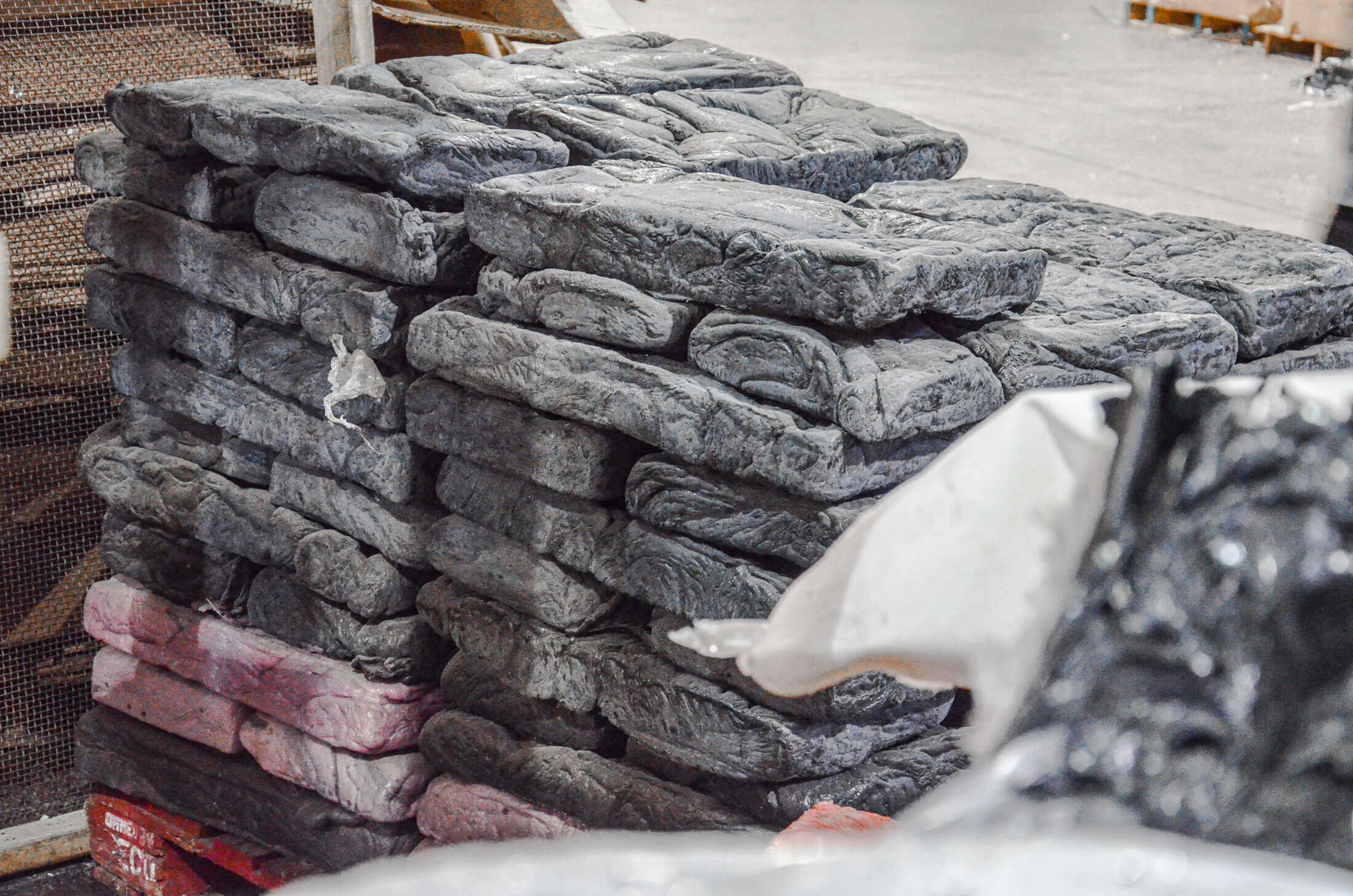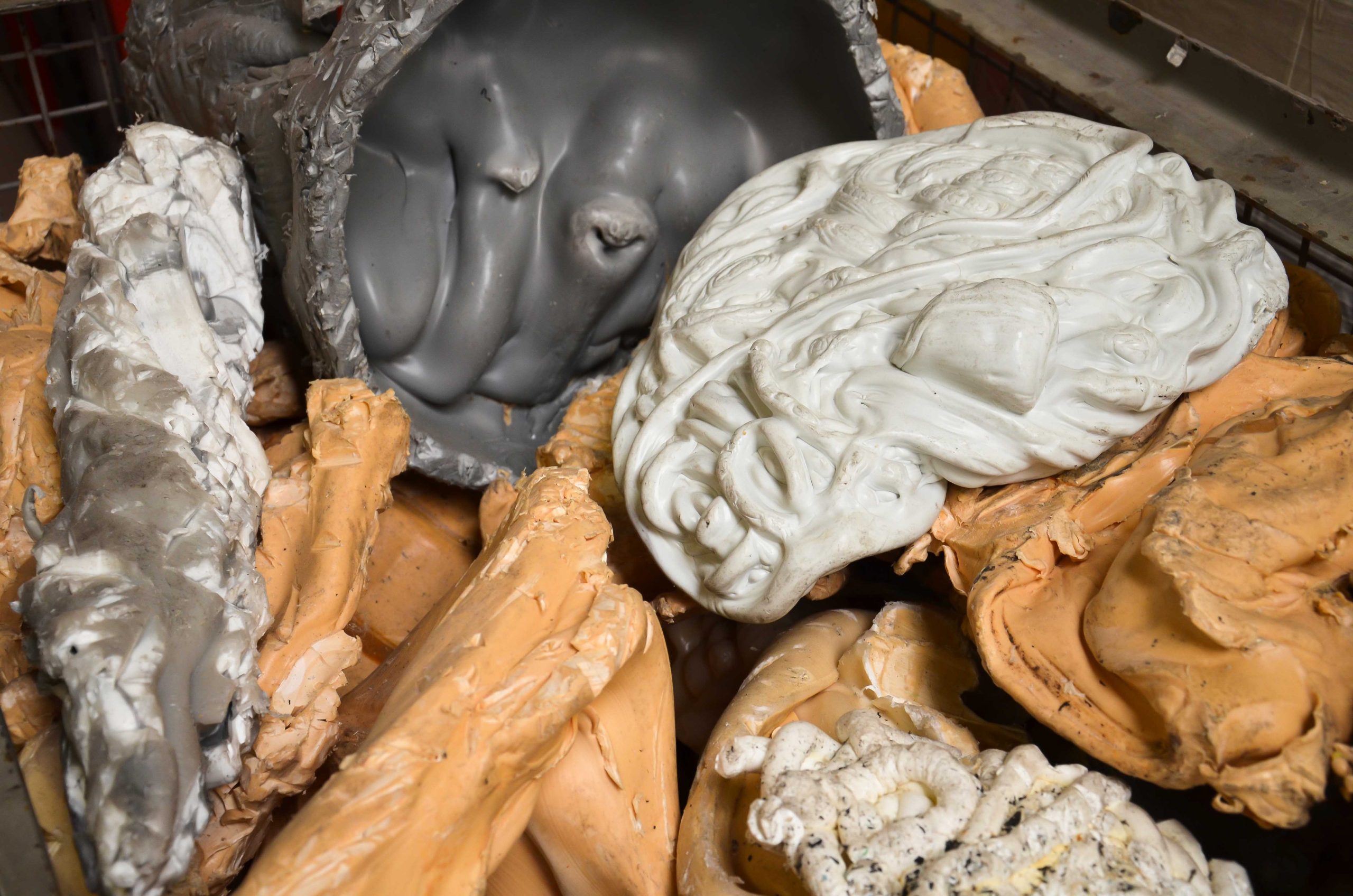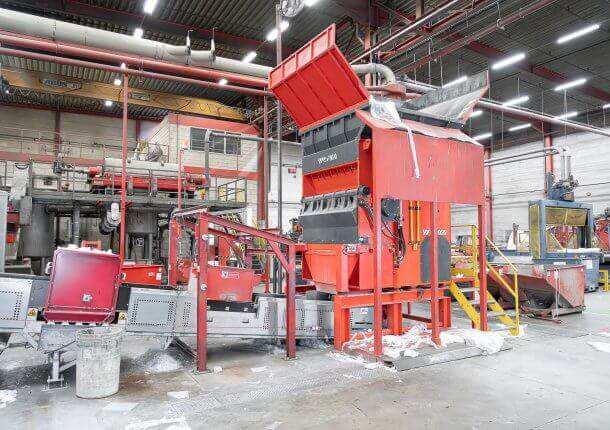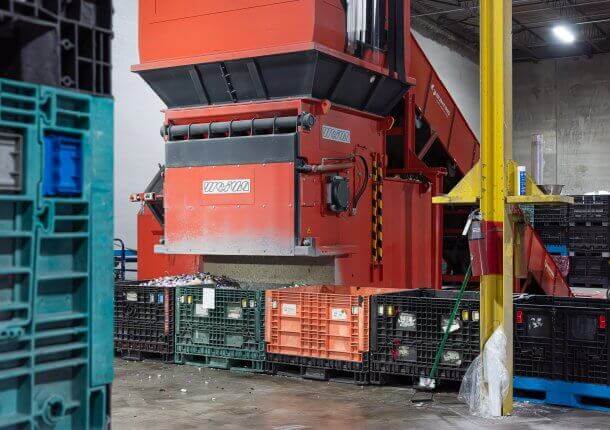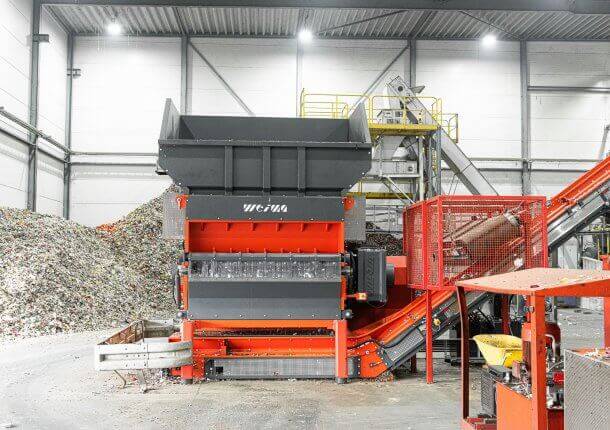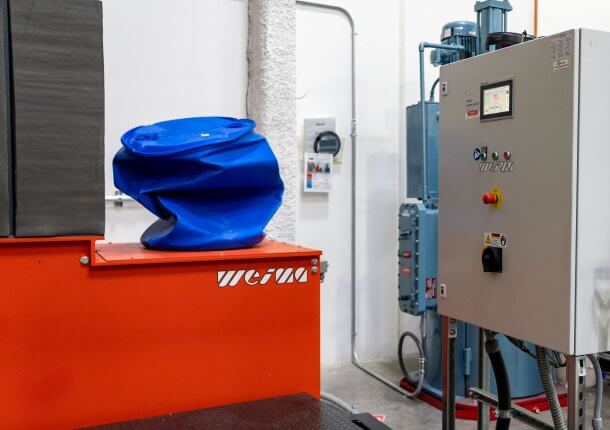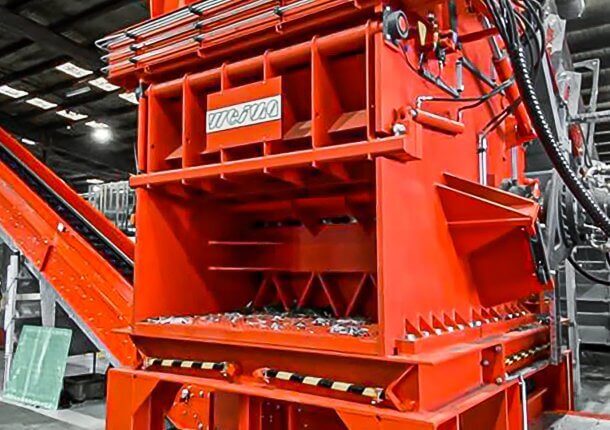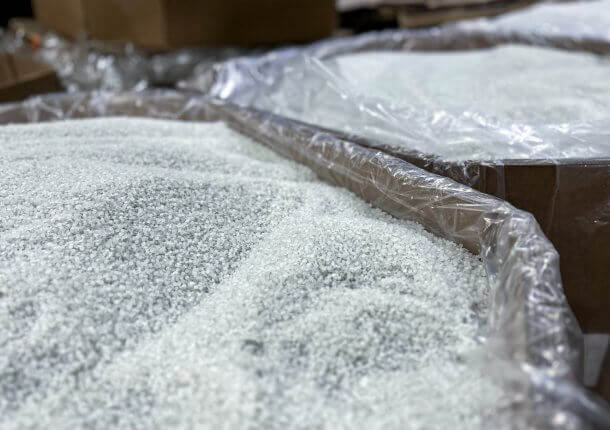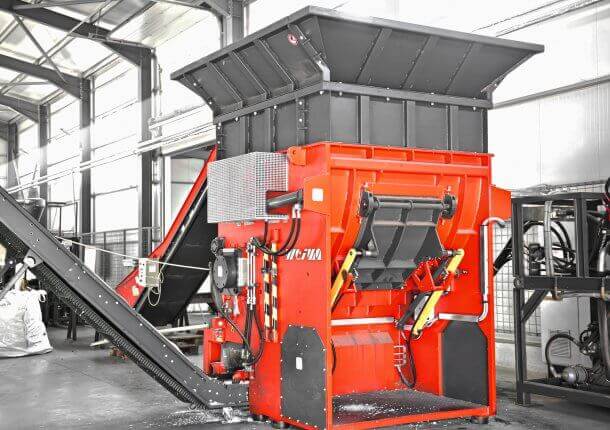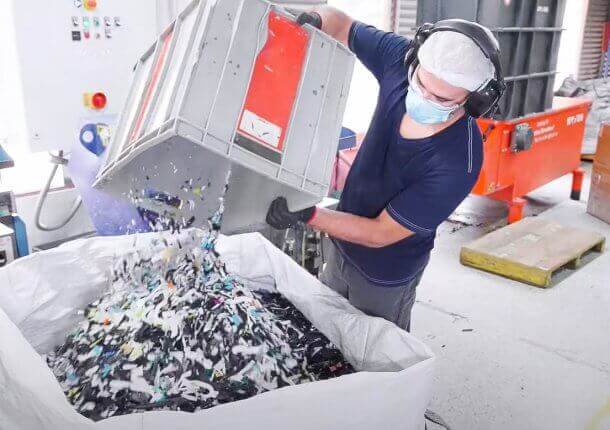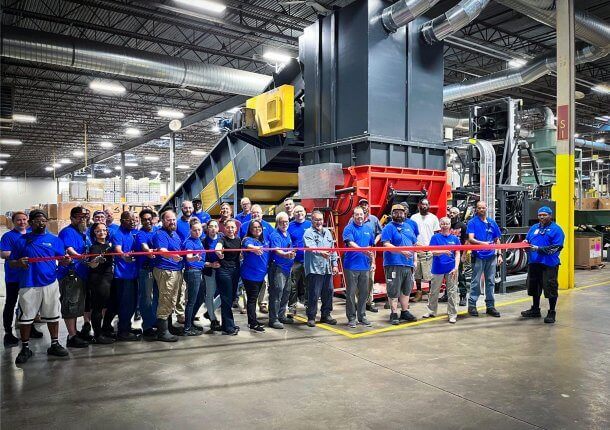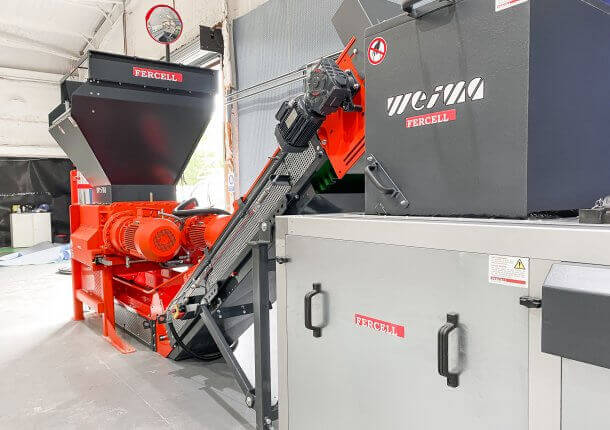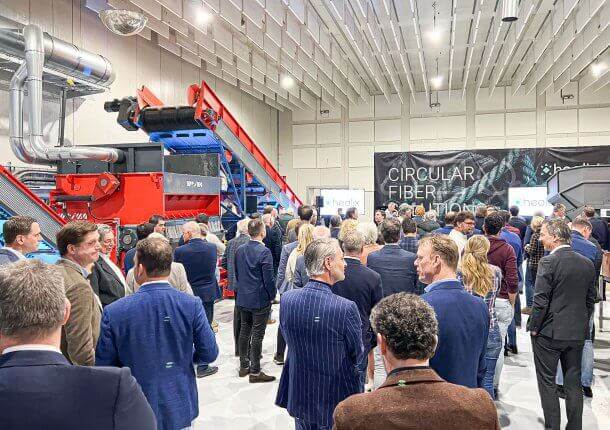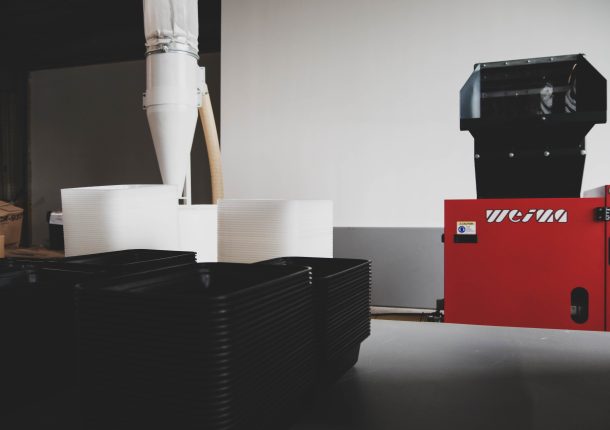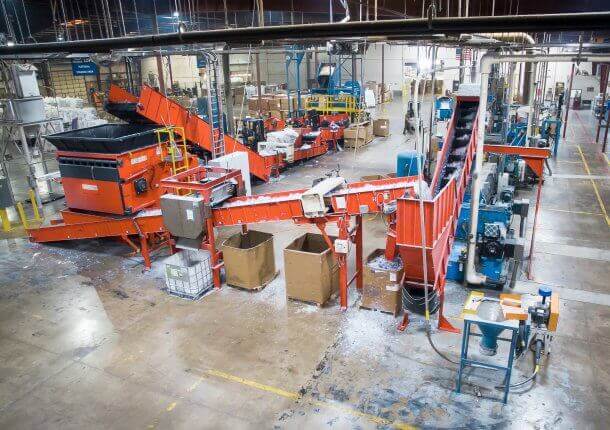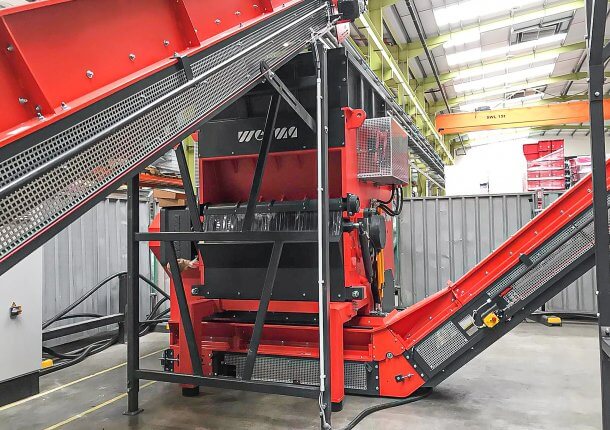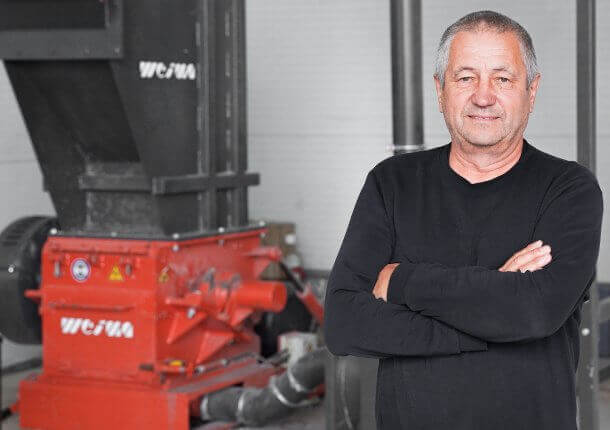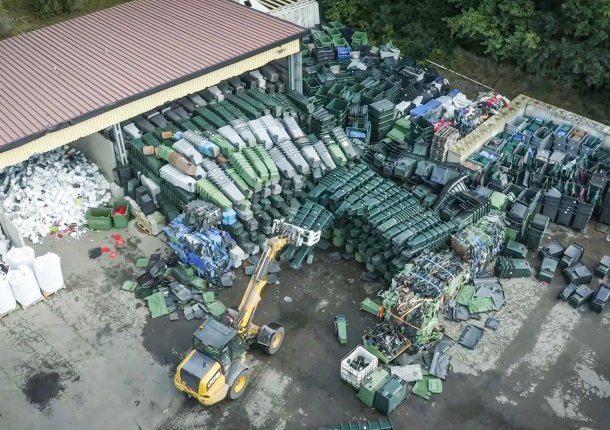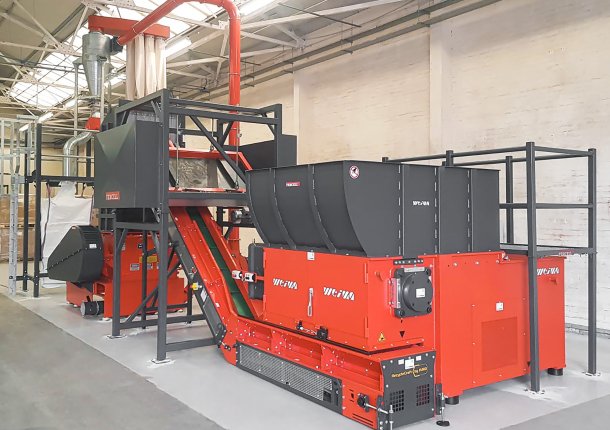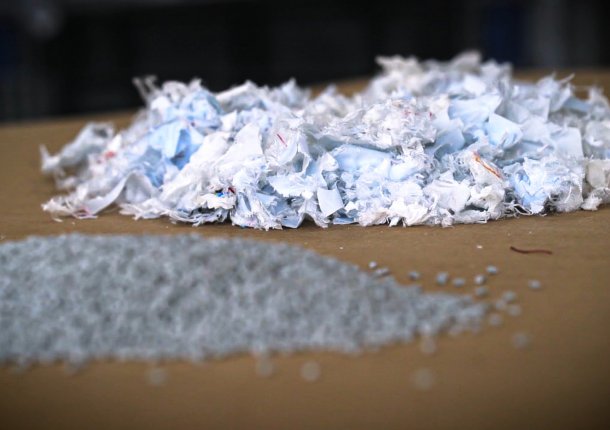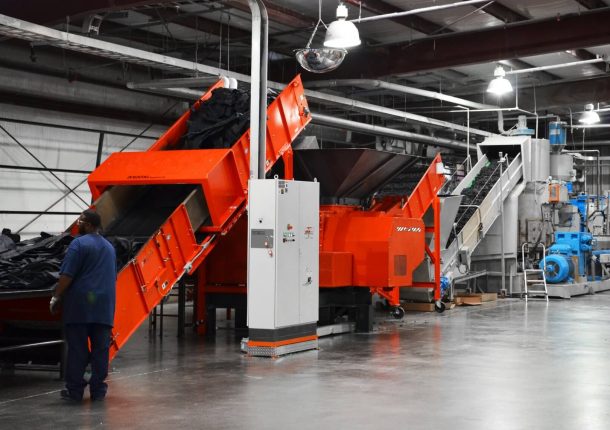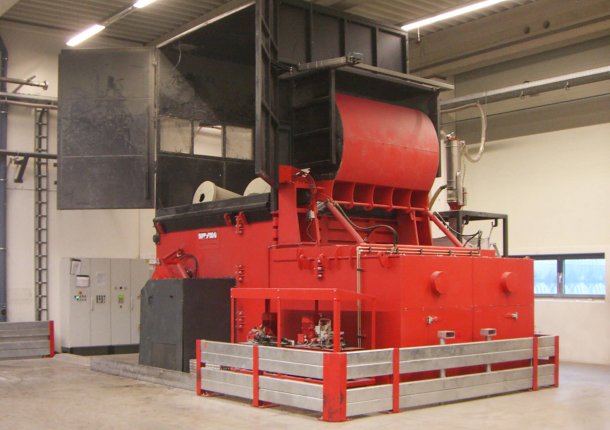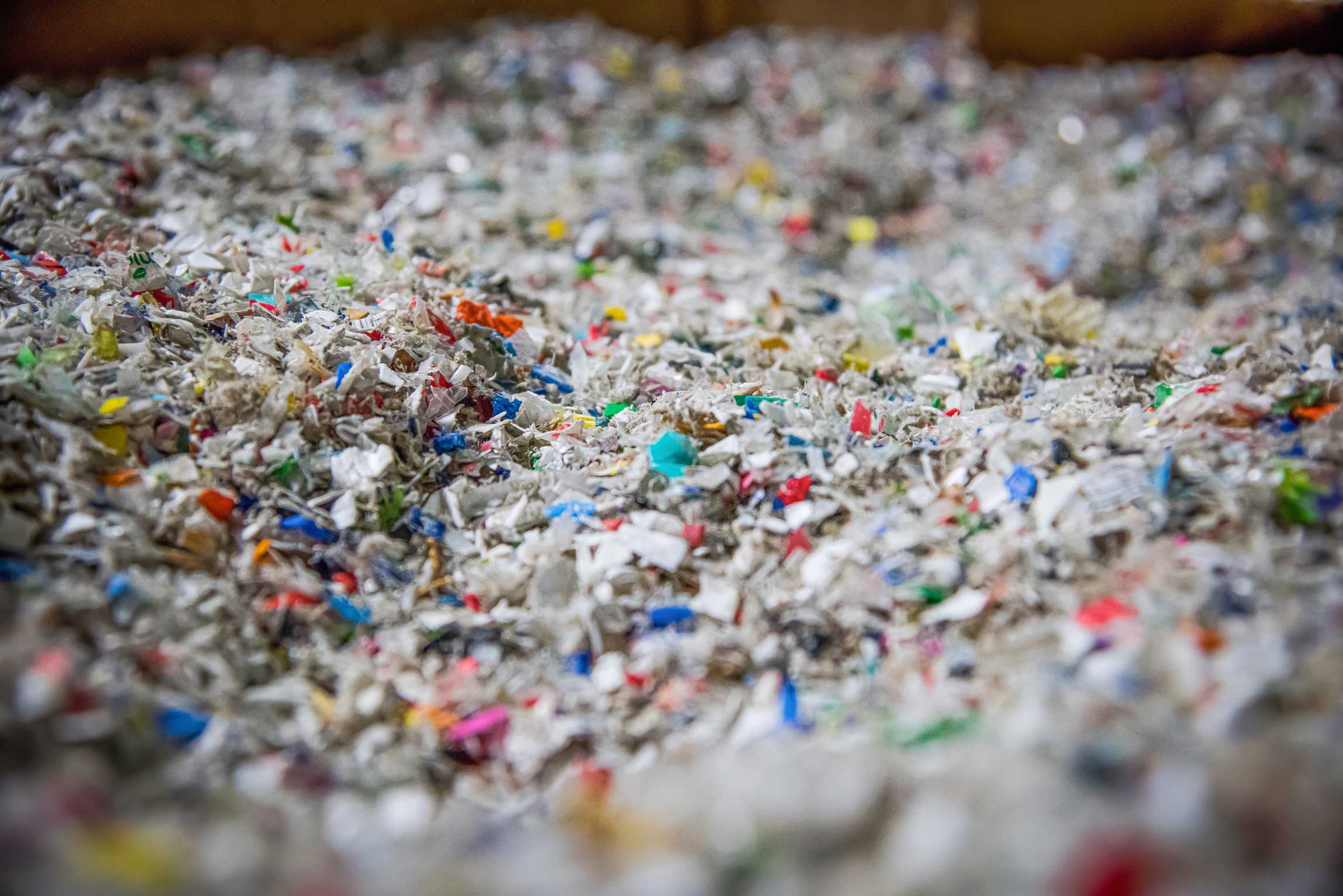
Industrial Plastic Shredders for In-house Recycling and Post Consumer Plastic
Plastic is a versatile material. Its properties range from tough polymer structures to highly rigid, high-tech products. Efficient shredding requires a great deal of experience and know-how.
With many thousands of plastic shredders delivered, there are hardly any applications that we have not already encountered. These include classic items such as start-up purge, lumps, crates, pallets, pipes, containers, molded parts and post-consumer waste such as PET bottles or packaging. It also includes particularly tear-resistant materials such as rubber, fibers and films, aramid, Kevlar or carbon.
WEIMA plastic shredding machines are up to the task.
Industrial Plastic Shredders for In-house Recycling and Post Consumer Plastic Industrial Plastic Shredders for In-house Recycling and Post Consumer Plastic Industrial Plastic Shredders for In-house Recycling and Post Consumer Plastic
These shredders are currently particularly popular.
Learn more about plastics and plastic recycling
When waste becomes raw material
The Circular Economy starts with us
WEIMA industrial plastic shredders are extremely flexible and offer different rotor types, rotor geometries and cutting tools, whereby they can shred a wide range of thermoplastics such as PE, PP, PVC, PS, PU and PET, as well as various thermosets and elastomers.
Even large-volume hollow bodies, long pipes and profiles, massive start-up lumps and other production waste, as well as PET bottles, textile fibers, foils, insulating materials, floor coverings, crates and containers master industrial WEIMA shredders effortlessly thanks to 40 years of experience in the plastics industry.
"With the high volumes of plastic waste in the world, sustainable disposal concepts are particularly needed. And shredding is the basis for this."
Gunter Schippers
Business Development | Plastics at WEIMA
PE lumps shredding with a WEIMA S7.20 shredder @Remondis Staffanstorp, Sweden
A WEIMA S7.20 single-shaft shredder shreds large and heavy PE lumps at a recycling plant of Remondis in Staffanstorp, Sweden.
Customer applications and examples
From the plastic industry
In-house recycling and post industrial plastics processing
as part of the Circular Economy
Direct return to the production line
Plastic waste generated during production is becoming increasingly valuable. As a secondary raw material, it can be returned directly to the production cycle. The first step in this process is the shredding of production waste such as start-up lumps or reject parts. WEIMA works closely with customers in order to find a suitable solution for the most diverse plastics. This way we ensure that even materials that are difficult to process are shredded into high-quality regrind.
In-house recycling saves money and protects the environment
With the right technologies, production waste can be reprocessed into new raw material. Thus you save high raw material costs, reduce long delivery times, avoid expensive disposal in external recycling plants and avoid the use of primary resources in the long term.
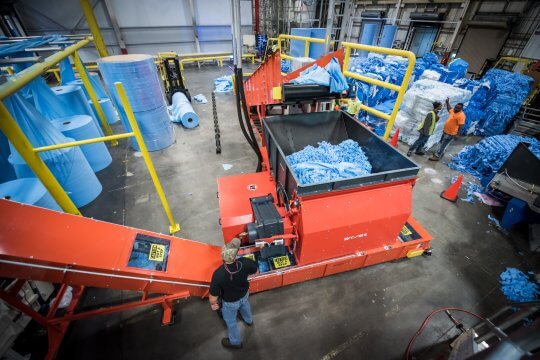
Shredding of PP flowerpots and post-consumer waste using 4 WEIMA Shredders at Aufderhaar Recycling
Take a behind-the-scenes look at Aufderhaar Kunststof Recycling from the Netherlands and their plastic recycling. Explore their upgraded production lines, featuring 4 powerful WEIMA shredders, that enable them to shred and recycle post-consumer waste and PP flowerpots.
Did you know?
Approximately 40% of the end consumer plastic waste is recycled in Germany.
Source: PlasticsEurope Germany
Shredding dirty agricultural stretch film (LLDPE) with a WEIMA PreCut 3000 shredder
A WEIMA PreCut 3000 single-shaft shredder with hydraulic drive shreds post-agricultural stretch film (LLDPE) for further recycling processing.
Post-Consumer Plastic Recycling
Post-consumer waste means plastic waste from private use. This includes packaging such as yoghurt pots, PET bottles, bags, films, containers, tubes as well as toys, labels, fibers and textiles. Due to the increase in global consumption, the amount of plastic waste is also increasing. Instead of disposing of it in our oceans or landfills, WEIMA shredders contribute to the promotion of alternative solutions. Together with our partners we develop single or multi-stage processing concepts in order to optimize the plastic lifecycle in the long term.
Fishing nets (ghost nets) shredding with a WEIMA WLK 1500 at Yangil Enpla, Korea
At Yangil Enpla in Incheon, Korea, a WEIMA WLK 1500 single-shaft shredder is used to shred fishing nets and other fibers for recycling and the production of regranulate.
Recycling or upcycling? It' s in your hand
Both concepts have the same goal: to extend the plastic life cycle. In recycling, plastic waste is usually shredded and transformed into regranulate by extrusion, e.g. to produce new PET bottles from old PET bottles. In upcycling, on the other hand, one tries to give supposedly useless plastics a new, higher-quality sense, either alone or in combination with others, e.g. bags made of packaging strings.

Shredding plastic purge with a WEIMA S5.18 lift-up @ Plastic Recycling Inc. South Carolina
A WEIMA S5.18 lift-up single-shaft shredder shreds plastic purge at Plastic Recycling Inc. in South Carolina.
What is Design for Recycling?
In order to ensure the recyclability of plastic products, disposal or recycling must be considered even before production begins. The term Design for Recycling (D4R), or recycling-friendly design, refers to the holistic conception and design of products that can be optimally returned to the recycling loop after their use. In this context, plastics in products should be combined in such a way that a clear separation of the different types is possible at the end of their life. This is the only way to keep waste streams pure and ensure their recyclability and thus their reuse as secondary raw materials.

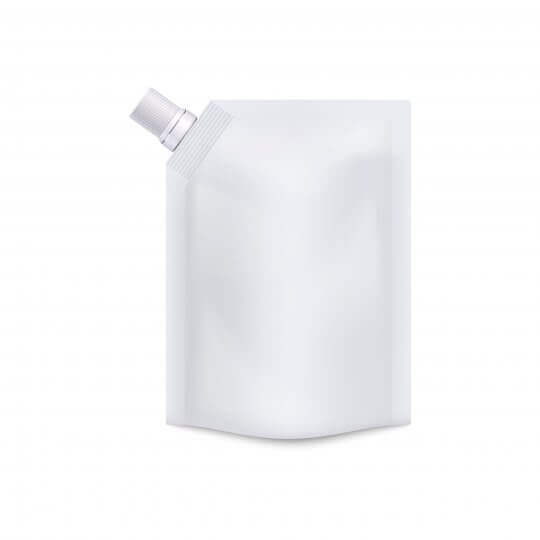
For example, a German cleaning product manufacturer fills detergents in environmentally friendly refill bags. These are made of 100 percent polyethylene (PE) and contain neither adhesives nor bonding agents. The printed band can be separated from the packaging, making the bag 100 percent recyclable. Another feature is that the packaging is made entirely from recycled plastic.
See for yourself
The WEIMA showroom is equipped with shredding and briquetting machines of all sizes and technologies. This enables us to simulate your application as realistically as possible. You have the possibility to send us your material or visit us directly in Fort Mill to observe the shredding process live.
Request an appointment now
Alternatively you can send us material for testing.
Click here for the form.
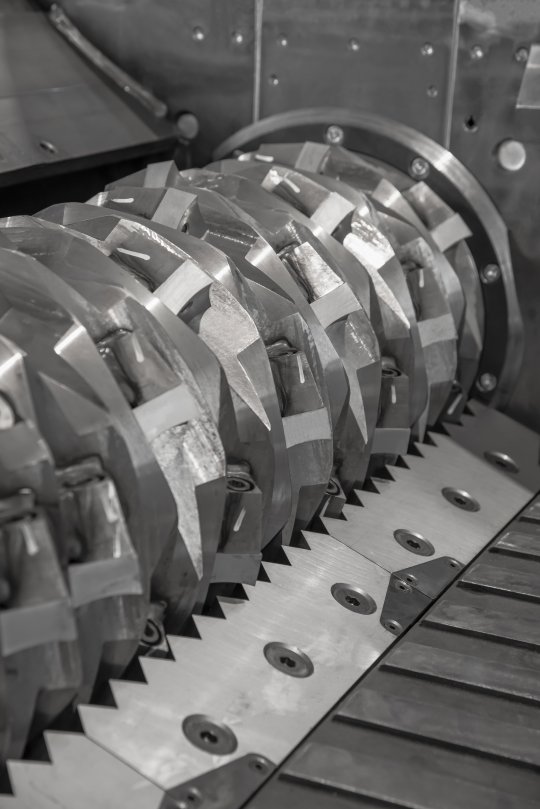
Shredder in the WEIMA showroom
HDPE Pipe shredding with a WEIMA PowerLine 2500 @ Remondis Röstånga, Sweden
A WEIMA PowerLine 2500 single-shaft shredder shreds different types of HDPE pipes at a recycling plant of Remondis in Röstånga, Sweden.
Success stories
What our customers think
What are you looking for?
Explore all WEIMA solutions
